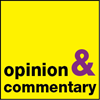 By Rory Nisan By Rory Nisan
April 3rd, 2024
BURLINGTON, ON
We should have been more vigilant.
When Premier Doug Ford was handing out “strong mayor” powers in 2023, there were no protests and little criticism over an apparently anodyne amendment to the Municipal Act.
Those powers made clear the premier’s intuition on local government: mayors should run the show and a concentration of power is a good thing.
The power to approve budgets and bylaws without majority support on council is an abrogation of the core democratic principle of majority rule. Frustratingly, those powers cannot be delegated, according to the legislation.
What can be delegated to all of council is the power to hire and fire senior staff, including the city manager.
Do not sleep on this one, especially when combined with the budget and bylaw power.
Whether used or sheathed, the mere presence of this weapon can wreak havoc on a municipal administration like Burlington’s. It not only undermines local democratic institutions, but potentially also creates a municipal administration rife with the opportunity for dysfunction as staff may be in constant fear of the strong mayor and being “next.” They risk being defunded or defenestrated if they don’t say yes to the strong mayor’s every whim.
And once this path is beaten, it is much harder to regrow the grass. Staff may look to other municipalities for work to get out from under a strong mayor, or not bother submitting their resumes to a strong mayor’s city hall when there is an opening.If I cannot have an equal say on the budget nor on the hiring of the city manager, if the mayor alone is able to change the entire organization to suit them, why have city councillors at all, Coun. Rory Nisan asks.
Numerous mayors, including Guelph, Halton Hills, Kingston, Kitchener and Milton, identified the risks to local democracy as well as their own reputations and delegated powers.
Others found the siren song to be too much to resist, and either laid down the law unilaterally or, like in Burlington, kept the powers for a rainy day.
That’s why I drafted the motion that has now been unanimously supported by Burlington city council to request Mayor Marianne Meed Ward delegate those strong-mayor powers. The mayor has thus far declined to take a position on delegation of powers and so council has given her the deadline of our April 16 council meeting to respond.
Thousands voted in my election, and I am accountable to all my residents. If I cannot have an equal say on the budget nor on the hiring of the city manager, if the mayor alone is able to change the entire organization to suit them, why have city councillors at all? Who would want that job?
Burlington council is also officially requesting the premier rescind these undemocratic privileges.
Some, including the premier, will say that we need strong mayors to get housing built. However, there is no actual connection to “getting it done.” A NIMBY mayor can leverage strong-mayor powers to do less for housing if they apply the powers shrewdly, and allowing mayors to hire and fire senior staff gets us no closer to shovels in the ground.
Others may point to Mayor Andrea Horwath employing strong-mayor powers in Hamilton to approve an affordable housing project. Even if the intended outcome is commendable, the door is now opened wider for future deployment of strong-mayor powers to overrule duly elected councils, a dangerous precedent for the entire province.
Finally, claims that the mayor is accountable at the ballot box every four years and so they should have strong-mayor powers is a superficial take on local government. Representative democracy relies on strong institutions such as city councils, where distributed power balances competing interests, leading to better outcomes.
The premier is also accountable and oversees municipalities, but we don’t want him governing municipalities directly — the same goes for mayors. We have city councillors for a reason: they are the closest to the ground, providing the most representation. They are the local voice.
The history of the premier at Toronto city council, where his brother’s powers were stripped in 2013 in what the now-premier declared at the time to be a “coup d’état,” is hard to ignore.
Premier Ford has been known to back down from bad ideas when exposed. Mayors across Ontario can correct the premier’s judgment, delegate powers back and build trust with the community. This starts in Burlington with Mayor Meed Ward, who as chair of Ontario Big City Mayors can show leadership and do the right thing.
Local democracy is the best kind of democracy. Let’s keep it that way.
Gazette publisher’s note: Interesting that Councillor would choose a newspaper from a different city to get his message out when there are three online newspapers that have significant readership. Councillors are the closest to the ground, providing the most representation. They are the local voice. Right on Rory. How many people in Burlington subscribe to the Hamilton Spectator?
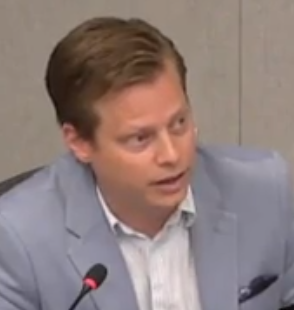 Rory Nisan is a deputy mayor in the City of Burlington. Prior to being elected to city council, he was a foreign service officer, during which he represented Canada at the UN, NATO and the Community of Democracies. Rory Nisan is a deputy mayor in the City of Burlington. Prior to being elected to city council, he was a foreign service officer, during which he represented Canada at the UN, NATO and the Community of Democracies.

 By Pepper Parr By Pepper Parr
February 16th, 2024
BURLINGTON, ON
OPINION
Some movement on that Special Council Meeting that the public was not able to see on the webcast.
There was no information on the city website about a Special meeting of Council – even though the Mayor had advised her colleagues not to leave after the adjournment of a meeting of Council.
We waited to watch the webcast once the room has been “reset”.
When we saw nothing we reached out to Councillor Paul Sharman who assured us there was nothing much of interest.
We then reached out to the City Clerk. The answer to the questions we asked is as follows:
The meeting after Council was a continuation of the closed session meeting that was entered into on January 12, 2024, with respect to the City Manager interviews and deliberations.
As per the motion, the notice provisions are waived for this meeting. A report out in open session is forthcoming.
First question is: How long did the meeting last?
Second question is: Why do they need two days to report out on a meeting ? That level of information is usually given when the come out of the CLOSED session.
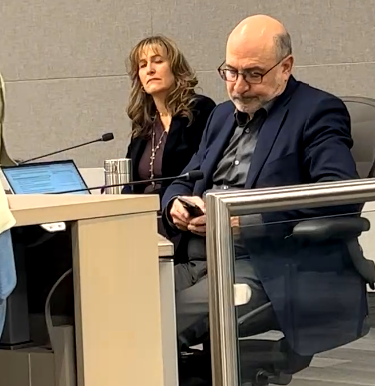 City Manager Tim Commisso working his cell phone – Mayor Med Ward looking on – wondering perhaps? We have suspected that the meeting was related to the position of city manager. Tim Commisso is scheduled to leave at the end of June. The interviewing process is currently taking place.
The City did send us the Minutes for the February 12th meeting. How you date the minutes February 12 for a meeting that took place on the 14th is beyond us.
Those minutes are set out in their entirety:
Special Meeting of Council Minutes
Members Present:
Mayor Marianne Meed Ward, Kelvin Galbraith, Lisa Kearns, Rory Nisan, Paul Sharman, Angelo Bentivegna
Member Regrets: Shawna Stolte
Staff Present:Tim Commisso, Samantha Yew (Deputy Clerk), Sue Evfremidis, Richard Bellemare (Audio/Video Specialist), Debbie Hordyk
Note: This City Council meeting was conducted using a hybrid model, allowing members of Council, city staff and delegations the option of participating remotely or in- person.
- Call to Order:
- Regrets:
- Land Acknowledgement:
The Chair read the land acknowledgement.
- Approval of the Agenda:
Moved by: Councillor Sharman Seconded by: Councillor Nisan
Approve the agenda as presented.
CARRIED
- Declarations of Interest:
None.
-
-
- Delegations:
- Jim Thompson spoke regarding City Manager Recruitment (HR-02-24)
- Items to be considered at the Special Meeting of Council:
- City Manager Recruitment (HR-02-24)
Set out in blue below is the information we had to chase the Communication
Moved by: Councillor Bentivegna Seconded by: Councillor Kearns
That Council proceed into Special Council Closed Session meetings in January and February 2024, to conduct confidential interviews and deliberations related to the recruitment of the City Manager position pursuant to Municipal Act, 2001 sections:
239(2)(b) personal matters about an identifiable individual, including municipal or local board employees, and
239(2)(k), a position, plan, procedure, criteria or instruction to be applied to any negotiations carried on or to be carried on by or on behalf of the municipality or local board; and
Direct the City Clerk to schedule Special Council Closed Session meetings as required to conduct confidential interviews and deliberations for City Manager position in the months of January and February pursuant to Municipal Act, 2001 sections:
239(2)(b) personal matters about an identifiable individual, including municipal or local board employees, and
239(2)(k), a position, plan, procedure, criteria or instruction to be applied to any negotiations carried on or to be carried on by or on behalf of the municipality or local board, and;
That this resolution satisfies the Closed Session meeting requirements set out in section 239(4)(a) of the Municipal Act, 2001 and Section 27.2 of the City’s Procedure By-law for any meetings scheduled for the purpose of City Manager interviews and deliberations; and
Waive the notice and agenda provisions of the Procedure By-law including sections 22.1, 24.5, 24.6 for all meetings called for the purpose of City Manager interviews and deliberations; and
Waive the Closed Session provisions of section 27.6 of the Procedure By- law to allow the result of these meetings be reported collectively out at future meeting of Council, where Chair will accept a motion regarding the matters discussed in the closed sessions, or alternatively advise that direction had been given to staff during the closed sessions in accordance with the Municipal Act.
IN FAVOUR: (6): Mayor Meed Ward, Councillor Galbraith, Councillor Kearns, Councillor Nisan, Councillor Sharman, and Councillor Bentivegna
CARRIED (6 to 0)
- Motion to Receive and File Information Items:
Moved by: Councillor Nisan Seconded by: Councillor Galbraith
Receive and file information items, having been considered by Council:
CARRIED
Delegation notes from Jim Thomson regarding City Manager Recruitment (HR-02-24)
- Motion to Confirm Proceedings of the Council Meeting:
Moved by: Councillor Sharman Seconded by: Councillor Galbraith
Enact and pass By-law Number 01-2024 being a by-law to confirm the proceedings of Special Council at its meeting held January 12, 2024 being read a first, second and third time.
IN FAVOUR: (6): Mayor Meed Ward, Councillor Galbraith, Councillor Kearns, Councillor Nisan, Councillor Sharman, and Councillor Bentivegna
CARRIED (6 to 0)
Motion to Adjourn:
Moved by: Councillor Nisan Seconded by: Councillor Kearns
Adjourn this Council now to meet again at the call of the Mayor. 9:15 a.m. (recess), 9:17 a.m. (reconvene), 9:18 a.m. (adjourned)
CARRIED
Samantha Yew
Deputy Clerk
Marianne Meed Ward
Mayor
Related news story:
Councillor Sharman assures the Gazette
Salt with Pepper is the musings, reflections and opinions of the publisher of the Burlington Gazette, an online newspaper that was formed in 2010 and is a member of the National Newsmedia Council.

 By Ray Rivers By Ray Rivers
February 11th, 2024
BURLINGTON, ON
“Spending under the Ford government has consistently been higher than it was under Wynne—whom Ford criticized frequently as a big spender during the election in 2018. Between 2017 and 2022, per-person spending (inflation-adjusted) has grown from $12,151 to $12,969.” (The Fraser Institute)
Ontario was already one of the most indebted jurisdictions in Canada. According to the the conservative think thank, The Fraser Institute, last year we paid out over $12 billion in interest payments alone. Even worse, that is projected to climb to over $15 billion annually by the time we head to the polling stations again. That is close to a 25 per cent increase over that three year period.
Ontario’s debt is approaching $400 billion, more than double that of the US state of California which has a population about equal to that of all of Canada. There was a modest surplus during the first year of the pandemic, when Mr. Trudeau’s feds were paying for just about everything. But Mr. Ford is planning to run deficits of almost $6 billion over the next two years, rivalling or exceeding those of the previous Liberal government.
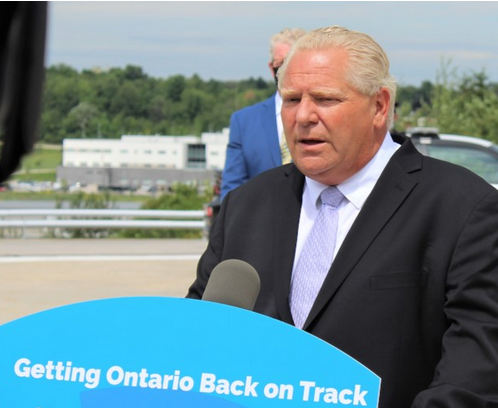 According to the Fraser folks….”The irony for Ford, the deficit fighter, is that had he only maintained the inflation-adjusted per-person spending at the same level he inherited from the Wynne government, he would be closer to running a surplus today.” Our growing economy has seen revenues increasing, but they have failed to keep pace with government spending. Over $10 billion of new net debt was created last year alone and another $24 billion is expected to be created over the three year period. According to the Fraser folks….”The irony for Ford, the deficit fighter, is that had he only maintained the inflation-adjusted per-person spending at the same level he inherited from the Wynne government, he would be closer to running a surplus today.” Our growing economy has seen revenues increasing, but they have failed to keep pace with government spending. Over $10 billion of new net debt was created last year alone and another $24 billion is expected to be created over the three year period.
So Mr. Ford has decided on a new gimmick. He’s creating an infrastructure bank, along the lines of the federal infrastructure bank. The province will ante up a few billion into the kitty and then the bank will rely on deposits from private investors. The money will be spent on provincial priorities like more long term care spaces, public transportation, etc. But, it will be arms length so the decisions about those investments will be made by a board of governors rather than our elected officials.
The federal bank, established in 2017, has been anything but a success. Then again, it was created to enable the federal government to participate in economic development for activities which might be argued are exclusively provincial or municipal. That is not a constraint for Ontario. Even so, Mr. Poilievre has called for the elimination of the Canada Infrastructure Bank. So why does Mr. Ford think his provincial bank is such a good idea?
It’s really just sleight of hand, a shell game – a simple application of smoke and mirrors. By pushing provincial spending into this new bank, he can take it off the provincial books, And the new bank will pick up all that liability instead and shrink the province’s deficits on paper, but not in reality. It’s kind of now you see it, now you don’t.
This scheme will not be cost free. Private investors, who will provide the bulk of the funds being dispersed by the bank, will demand to be paid market interest, which will be higher than what the government is currently paying on its debt. After all, this will not be provincial borrowing per se backed by the provincial government. Thus, the risk to investors will be higher. And to compensate for that risk, investors will want higher interest premiums than the government would normally have to pay.
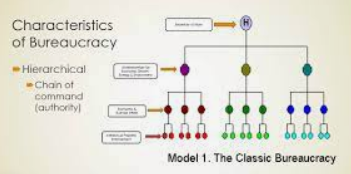 Since more of the banks funds will thus be going into servicing the bank’s borrowing, less will be available for the various purposes for which it was created, such as funding long term care construction. Additionally, there are the not insignificant costs of establishing and operating the new bureaucracy, as well as rewarding its highly salaried staff to run the bank. Bottom line – this fancy financial dancing is the least efficient and most costly way to deliver provincial programs. Since more of the banks funds will thus be going into servicing the bank’s borrowing, less will be available for the various purposes for which it was created, such as funding long term care construction. Additionally, there are the not insignificant costs of establishing and operating the new bureaucracy, as well as rewarding its highly salaried staff to run the bank. Bottom line – this fancy financial dancing is the least efficient and most costly way to deliver provincial programs.
It would be less expensive for taxpayers if Mr. Ford just used the existing resources of the provincial government to pay its bills, rather than hiving those bills off onto an another costly bureaucratic agency. And of course, it certainly would be better if Mr. Ford simply reduced deficits and debt as he had promised to do back in 2018.
But that would involve revisiting taxation rates for some of the wealthiest Ontario residents. And most importantly, it would involve cutting out costly ‘pet projects’ such as the proposed Highway 413 and relocation of the Science Centre.
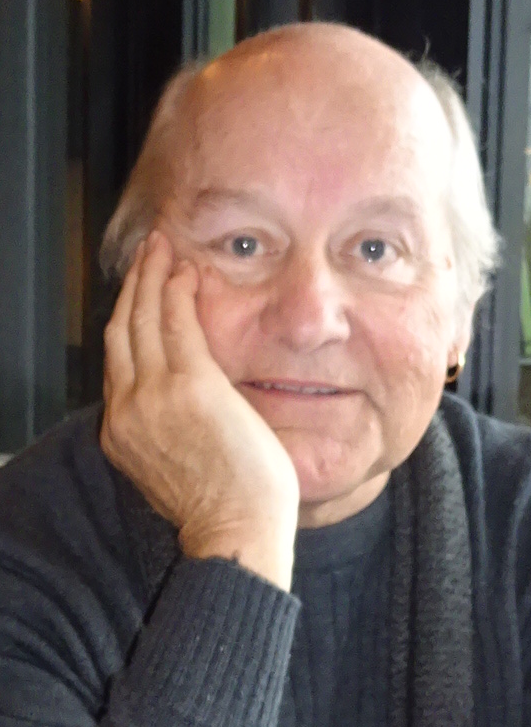 Ray Rivers, a Gazette Contributing Editor, writes regularly applying his more than 25 years as a federal bureaucrat to his thinking. Rivers was once a candidate for provincial office in Burlington. He was the founder of the Burlington citizen committee on sustainability at a time when climate warming was a hotly debated subject. Ray has a post graduate degree in economics that he earned at the University of Ottawa. Tweet @rayzrivers Ray Rivers, a Gazette Contributing Editor, writes regularly applying his more than 25 years as a federal bureaucrat to his thinking. Rivers was once a candidate for provincial office in Burlington. He was the founder of the Burlington citizen committee on sustainability at a time when climate warming was a hotly debated subject. Ray has a post graduate degree in economics that he earned at the University of Ottawa. Tweet @rayzrivers
Background links:
New Bank – Why A New Bank – Who Benefits – Federal Bank –
Fraser Institute – More Fraser – Even More Fraser – The Science Centre –

 By Ray Rivers By Ray Rivers
January 22nd, 2024
BURLINGTON, ON
If you are a taxpayer in Ontario and have checked your bank account recently you should see a deposit. That is your quarterly carbon tax rebate. It may or not be shown as CAIP (climate action incentive payment) depending on the banking institution. But it is tax-free money from your federal government and intended to offset the so called federal carbon tax.
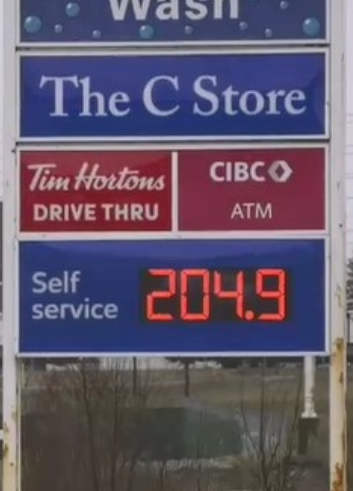 The federal government argues that it’s not properly a tax since, as a kind of revolving fund, the carbon levy is revenue neutral. Everything collected is returned to tax filers less some small amount for administration. The point of the tax is to make the costs of fossil fuels increasingly more costly so Canadians will switch to non-carbon alternative energy sources. The federal government argues that it’s not properly a tax since, as a kind of revolving fund, the carbon levy is revenue neutral. Everything collected is returned to tax filers less some small amount for administration. The point of the tax is to make the costs of fossil fuels increasingly more costly so Canadians will switch to non-carbon alternative energy sources.
Though the carbon levy was originally introduced as a climate change policy, it has in fact also turned out to be a good income equity measure. The carbon tax rebate, which, in Ontario is now approaching one thousand dollars a family annually, makes Mr. Trudeau look like Robin Hood.
According to a 2023 Statistics Canada report, 94 per cent of households with incomes below $50,000 received carbon tax rebates that exceeded their carbon-tax costs in 2023. About half of these households netted out between $20 and $40 per month.
Increasing the cost of fossil fuels is a step in the right direction towards rectifying the historical distortion in resource pricing. The federal and provincial governments have been subsidizing the petroleum sector with the handouts of tax payers’ money for at least half a century, and that hides the true cost of your gasoline and heating fuel.
Ontario, for example, is now spending millions of our tax payer dollars to cap its legacy oil wells which continue to leak methane, a powerful greenhouse gas. The landscape of Alberta and Saskatchewan is dotted with old unused orphan wells. Some 170,000 or almost 40% of all the wells are in Alberta need to be capped. And it has been left up to governments to clean up this mess.
Alberta was the first jurisdiction in the country to impose a carbon tax of sorts on its industries, back in March 2007. Quebec followed with a broader consumer tax and B.C. brought in an even broader one, covering roughly 70% of provincial greenhouse gas emissions. Quebec and Ontario then had implemented a cap-and-trade emissions program which exempted them from the federal carbon tax, but Doug Ford axed Ontario’s along with all new renewable energy projects as one of his government’s first acts.
The Canadian federal carbon tax was implemented in 2019. It is a progressive tax, similar to the programs in Quebec and B.C.,and increases each year in hopes that the consumers get the message. This year it’ll be 17 cents per litre of gasoline and 15 cents per cubic metre of natural gas. That works out to roughly $80 per tonne of CO2. But, the tax will more than double by 2030.
 Mr. Trudeau dealt the credibility of carbon pricing a blow when his government decided to help homeowners by removing the carbon tax from heating oil. This lapse in policy stinks of partisan politics. Moreover, that has given Mr. Poilievre ammunition in his quest to completely axe the carbon tax should he win the next election. And given the polls that is exactly what will happen in 2025 if not sooner. Mr. Trudeau dealt the credibility of carbon pricing a blow when his government decided to help homeowners by removing the carbon tax from heating oil. This lapse in policy stinks of partisan politics. Moreover, that has given Mr. Poilievre ammunition in his quest to completely axe the carbon tax should he win the next election. And given the polls that is exactly what will happen in 2025 if not sooner.
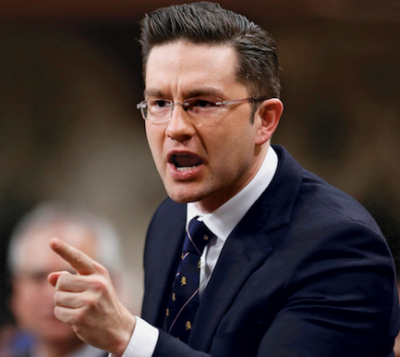 Pierre Poilievre hammering the Trudeau government in the House of Commons. Most folks I’ve asked recently have not noticed receiving their clean air incentive (CAIP) in their bank accounts, even though they likely have. And that ignorance, may be why Mr. Poilievre is gaining so much traction with his misinformation campaign about the carbon tax.
Perhaps the federal government needs to reconsider using less expensive direct deposit for the CAIP. After all, nothing communicates the truth to taxpayers better than a government cheque in their hands.
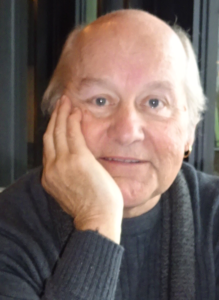 Ray Rivers, a Gazette Contributing Editor, writes regularly applying his more than 25 years as a federal bureaucrat to his thinking. Rivers was once a candidate for provincial office in Burlington. He was the founder of the Burlington citizen committee on sustainability at a time when climate warming was a hotly debated subject. Ray has a post graduate degree in economics that he earned at the University of Ottawa. Tweet @rayzrivers Ray Rivers, a Gazette Contributing Editor, writes regularly applying his more than 25 years as a federal bureaucrat to his thinking. Rivers was once a candidate for provincial office in Burlington. He was the founder of the Burlington citizen committee on sustainability at a time when climate warming was a hotly debated subject. Ray has a post graduate degree in economics that he earned at the University of Ottawa. Tweet @rayzrivers
Background links”
Climate Action Pricing – Carbon Rebate – Lower Incomers – Industry Legacy –

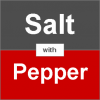 By Pepper Parr By Pepper Parr
January 16th, 2024
BURLINGTON, ON
OPINION
The Canadian Centre for Policy Alternatives started the new year with a bang: On January 2nd they launched their annual CEO pay report, Canada’s New Gilded Age, which reveals that Canada’s highest-paid 100 CEOs make 246 times more than the average worker.
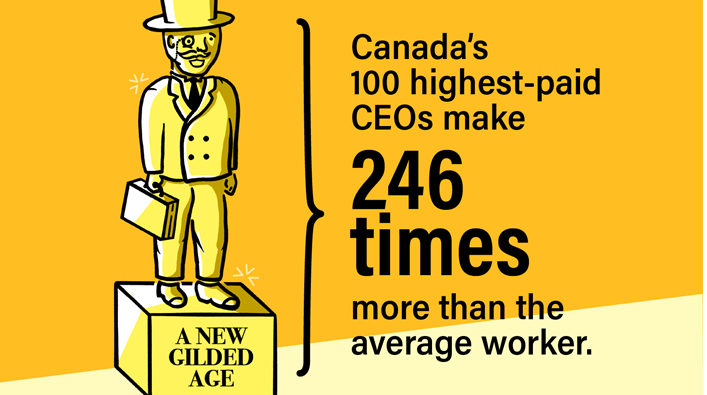
Those 100 CEOs were paid an average of $14.9 million—setting a new all-time high. Top CEOs are making $7,162 per hour, meaning it only takes eight hours to make what the average worker earns after an entire year’s worth of work.
To look at the details click HERE.
That data is outrageous.
Certainly outrageous but also very dangerous. The number of people earning those exceptionally high salaries while thousands are not certain they are going to be able to keep the homes they have been making mortgage payments on for a decade. A society can’t function with this kind of imbalance.
The tax system gives the federal government the power to create a more level distribution of money.
But the government hasn’t been doing that.
Nor has the federal government been keeping the promises it made.
When Rogers took over Shaw the public was told that internet access and cell phone costs would not increase.
Remember when the federal government summoned all the heads of the supermarkets to Ottawa to demand that changes be made to the way food was being priced?
Have you seen anything positive done on either of those issues?
There comes a point when the public doesn’t want to put up with the failed promise delivery. Trust in government is diminishing.
If you want to understand what can happen when that trust disappears – just look south.
The CCPA report dominated the media market, garnering 2,195 media mentions in the first two weeks of January alone. That’s 48 per cent higher than last year.
Among those thousands of media hits, CCPA Senior Economist David Macdonald spoke with the CBC’s As It Happens and continues responding to interview requests even today.
The CCPA maintain they are not just making an impact in the media, they argue that their research feeds movements: both the Council of Canadians and Lead Now have launched campaigns mobilizing Canadians to pressure the government for measures that would disincentivize extreme CEO compensation.
Salt with Pepper is the musings, reflections and opinions of the publisher of the Burlington Gazette, an online newspaper that was formed in 2010 and is a member of the National Newsmedia Council.

 By Staff By Staff
December 8th, 2023
BURLINGTON, ON
Daintry Klein was delegating on the Drainage By-law Amendment; one of those dry as toast subjects – until she revealed that the large stormwater storage tanks that are proposed to be privately owned by the new condo corporation. At that point the delegation became more about what could happen to the current Millbrook residents and not so much about the bylaw amendment,
Mayor, Council, Staff and Fellow Burlingtonians,
“We would like to thank the Engineering Department for its work in updating this drainage by-law. It acknowledges climate change and provides important updates to recognize the impacts of rainfall and groundwater in the potential for flooding. The report also refers to best practices. It seems that further work needs to be done and we look forward to the City, the Region, Conservation Halton and the Province to continue to address the rapidly evolving risks of Climate Change consistent with the work being done by the Federal Government and the insurance companies. Through their extensive work, they have recommended their own set of best practices.
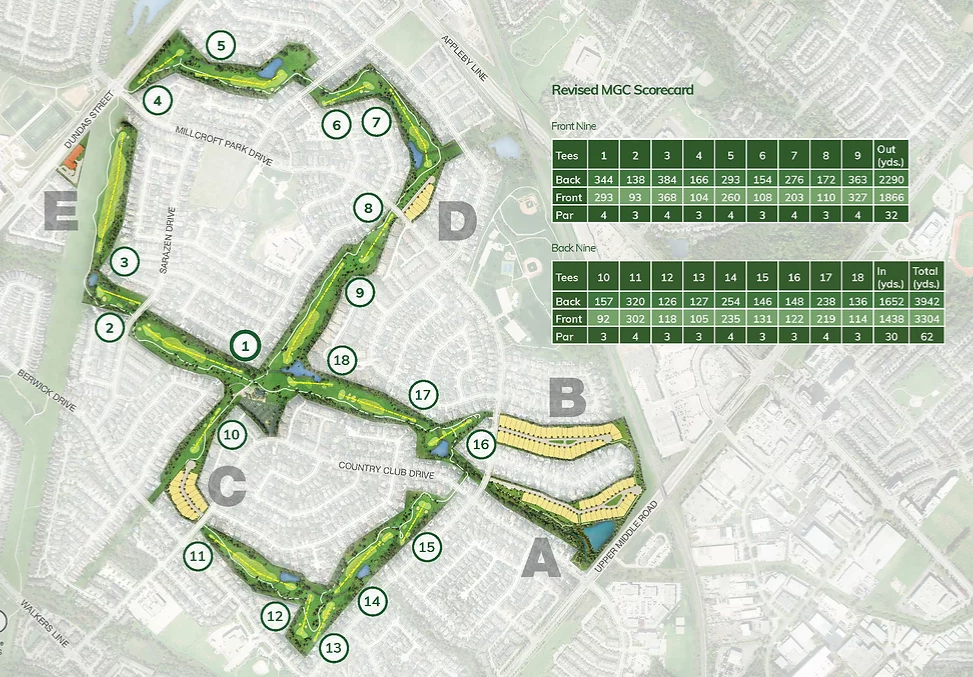 Yellow location are where developer Millcroft Greens want to build 98 homes. “As homeowners, we rely on our governments to keep us safe. To protect us from what many of us are unaware of in our daily lives as we go about our careers where our expertise is in other disciplines. As part of the planning and building process, grading and drainage is considered and clearance certificates are issued upon completion to ensure that properties are safe.
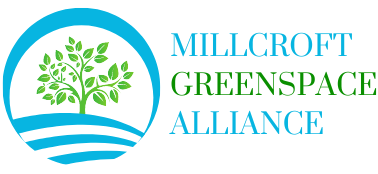 Alliance is one of two community groups opposed to the development of additional homes on golf course property. “It has come to the attention of Millcroft Greenspace Alliance that other standards used by the City and Conservation Halton to evaluate the causes and risks of flooding also need updating. We were initially encouraged to know that Conservation Halton, an organization that “Protects the Natural Environment from the Escarpment to Lake Ontario” is engaged in the East Burlington Creeks Flood mapping study. As we read the most recent report, we learned that the analysis is not relied upon by insurance companies. This raised questions for us. Further investigation led us to learn that Public Safety Canada and the insurance companies rely on the same flood modelling as FEMA in the United States which is a newer, more complex computer program that includes the impacts of rainfall.
“A National flood insurance plan would be based on this type of modelling. Conservation Halton and the City use HEC-RAS, a 1D model that considers surface water with adjustments but doesn’t include rainfall. When we have made inquiries to Conservation Halton, they advise us that they only consider riverine flooding. So, as we understand it, after the creeks and natural drainage are altered and channelized and the new regulation limits are established, Conservation Halton no longer considers the impacts of the broader watershed in its development decisions.
 Klein: “The proposed update of this drainage by-law could be of particular interest to the homeowners in Millcroft. “The proposed update of this drainage by-law could be of particular interest to the homeowners in Millcroft. We are aware of the experience of infill development particularly in south Burlington.
“Argo Development Corp and Millcroft Greens have to-date refused to withdraw their proposed development application. The City and the Region have unanimously opposed and subsequently requested, that the Province step in and issue an MZO.”
It was at this point that Committee Chair Rory Nisan cut in and asked Ms Klein to stick to the subject which was the Drainage By-law Amendment. Klein explained that she was trying to put her delegation into context and what it would mean in practical terms to Millbrook residents; Klein continued. This wasn’t the last time Chair Nisan cut in.
“The City on September 26 and the Region of Halton on October 18 of this year for reference of the passage of time. We are still waiting for the Province to act. Although the Premier is on record saying that he will not allow building on floodplains, he still has not stopped this development application. Hundreds of emails have been sent.
“At issue, is the fact that the Millcroft Golf Course greenspace was designed to drain the adjacent properties and slow the flow of drainage from the Escarpment to Lake Ontario, protecting properties to the south. As of December 1st, the witness statements for their OLT appeal are in. Glen Wellings, the planner on the Millcroft Greens file, diligently details the process and dates of the application but forgets to mention the stormwater peer review or the Conservation Halton flood mapping. He refers to the 6th and 7th holes as gently rolling with some flat areas.
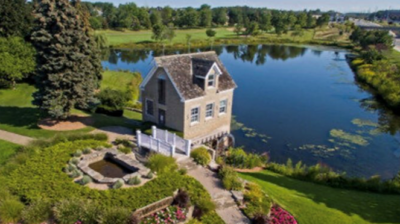 The mill pond is a critical part of the infrastructure that has managed stormwater. “As Millcroft homeowners, we understand from the initial engineering reports that the topography is actually contoured berms and swales that direct water through the fairway open channels toward the stormwater catch basins that take the water through the stormwater easements to the Millpond. And the fact that our properties were designed to have the functional drains 2.5 meters above the bottom of the fairways is also very relevant. This is all documented in the original documents when the Millcroft subdivision was created.
“The developer is proposing to fill the fairways up with topsoil and reduce the grade to the 2% guidelines. This could disperse the water across the neighbourhood into the existing homeowner properties causing the type of flooding that this drainage by-law seeks to address.
“The large stormwater storage tanks that are proposed to be privately owned by the new condo corporation are designed to manage the ongoing stormwater flows for our neighbourhood. These will be maintained by our neighbours and we must look to them financially for failure? They are also detailing that the new homes will be equipped with sump pumps – something the existing homes were not designed for due to the existence of the grading to the bottom of the fairways from our rear lot lines. Not to mention the fact that the proposed new rear yards will have catch basins in their back yards that manage the stormwater for the neighbours – potentially the site of a pool or patio in the future or garden refuse. Topics this by-law seeks to address. And we note that the engineers of this proposed application accept no liability for their work? Relying on legal recourse against neighbours to protect our properties is contrary to the goal of community building.
 Klein: “We are not clear on the process to recover potential losses from the after effects of the proposed construction if it isn’t stopped by the Province. “We are not clear on the process to recover potential losses from the after effects of the proposed construction if it isn’t stopped by the Province. The by-law suggests that ultimately, the Property Owners will be liable. However, if allowed, Argo and Millcroft Greens will change the existing Millpond, watercourses, ditches and swales and other existing green infrastructure per their development plans. The unsuspecting new homeowners of the proposed condominium corporations could be left with the liability long after Argo has withdrawn all funds from the development corporation. Would it be reasonable for builders to share in the financial responsibility for potential impacts of their actions? Should they be required to own and fund the proposed infrastructure?
“Recognizing that the Millcroft golf course greenspace is actually a natural form of the City’s stormwater management system, we urge the City to take all necessary steps to ensure that Millcroft Greens is prevented from building homes on this land. Public Safety Canada in its report of August 2022 prescribes best practices to include natural infrastructure as method of mitigating flood risks. As taxpayers, we ask the City to mitigate our collective risk and protect this greenspace.”
Klein is of the view that she was interrupted by the chair because some of what we had to say may be uncomfortable.
“This City endured the 2014 flood with many residents incurring out of pocket expenses to repair damages. We believe many residents are unaware of the potential flooding impacts of proposed infill development. The Province does set guidelines on stormwater however they seem to be outdated relative to Public Safety Canada and the insurance companies. There may be options for the City to implement its own guidelines.
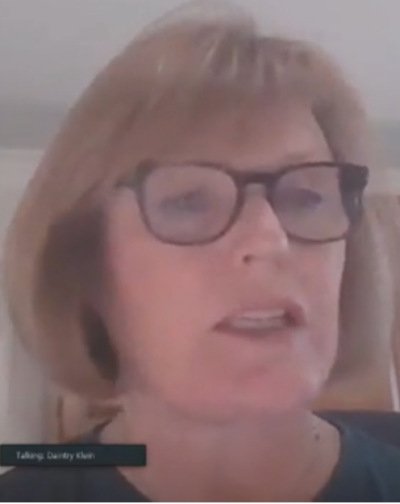 Klein: Should the unsuspecting homeowners take on the liability? “Our comments highlight information from the East Burlington Creeks study and notes from the City which we believe could result in unintended consequences for homeowners in the future after homes are built and the developer is gone. Should the unsuspecting homeowners take on the liability?
“The City has the opportunity to solve the issue of the proposed development on the Golf Course greenspace. It is part of the stormwater infrastructure for the City and we are unaware of any other infrastructure of the City that is privately owned and controlled. After three years of study, we look forward to this coming to a positive ending for the community as a whole before the OLT.”
What Klein chose to be polite about and not mention the grandstanding the Mayor did at a community meeting a number of months ago saying she was working with the then Minister of Municipal Affairs and Housing about the issuing of a Ministerial Zoning Order (MZO) that would end the matter before it got to the Ontario Land Tribunal.
Relayed new stories
Greenspace Alliance purpose
High end homes planned for Millcroft community

 By Staff By Staff
November 24th, 2023
BURLINGTON, ON
Eric Stern delegated to City Council during the budget debates. We asked him if he would do a short piece on what he had to say about his experience in talking to City Council.
Here is what he had to say:
I’ve delegated (spoken) to council twice and I’m slowly learning the inner workings of the budget process.
This is my high-level summary:
1 – Use social media to repeat the simple message “4.99% budget impact.”
 2 – Bury the details, where almost no one can find them, on page 728 of the budget book. 2 – Bury the details, where almost no one can find them, on page 728 of the budget book.
Page 728 shows a 13.7% spending increase.
3 – Wendy Fletcher, the citizen who created a Petition asking people to help STOP the Proposed 2024 Property Tax Increase, points out the city’s own survey shows the majority want services cut or maintained at the current level. No problem, release a new “statistically accurate” survey that shows people want tax increases. Release on a Friday just before an important, and public, Tuesday meeting. I haven’t been able to find the survey so there won’t be much public input but it does make for a great talking point for the mayor.
4 – Make a few tweaks to the budget so the council can say they listened to the public.
5 – Use the strong mayor powers to limit citizen input and force the city prepared budget through in 30 days. The strong mayor legislation allows the mayor to prepare a budget. Repeat another simple message over and over again, “Doug Ford forced me to present a budget.”
6 – Run a victory lap and start hiring somewhere between 50 and 90 new employees.
7 – Repeat next year. Why not, last year the city pulled off a 15.5 per cent municipal tax revenue increase and no one even noticed. Don’t believe me? Take a look at line 1 of your tax bills for 2022 and 2023.
Our mayor and council have been in power for so long they have forgotten who they represent. Public service organizations rarely have enough resources to do their jobs. Council, as our board of directors, is tasked with balancing insatiable need with what the community can afford.
We are heading towards a two-line tax return:
Line 1 – How much money did you make last year?
Line 2 – Send us the amount on line 1.
Dan Chapman delegated at city hall on Thursday November 23rd. Chapman was eloquent, intelligent and didn’t hold back his distaste with the increases. Have a listen.

 By Ray Rivers By Ray Rivers
August 11th, 2023
BURLINGTON, ON
Premier Doug was right about one thing. Ontario’s housing crisis is a matter of demand and supply. And though he didn’t actually point fingers, we all know that Justin Trudeau’s ambitious immigration policy is mostly why there are all these new Canadian residents looking for homes which don’t yet exist. Still, of the federal leaders only Maxime Bernier would restrict the flow of immigration. Even Pierre Poilievre, who likes to complain about housing and inflation problems related to the surge of newcomers, has yet to offer alternate immigration targets.
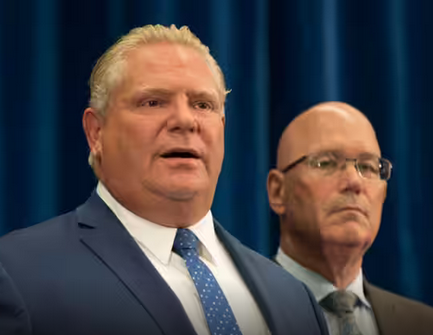 Premier and Minister of Housing take their case to the public – the try to keep a straight face. In any case, housing demand is not why Doug Ford carved up the Greenbelt. One only has to read the well researched and damning report by Ontario’s Auditor General (AG) to see that his justification for gifting Greenbelt lands to his friends was just not true. Every person who voted in the last election and cares about preservation of our democracy and the environment should make her report mandatory reading.
It is a very sad story; a story of betrayal of public trust and one that we would have expected somewhere else, like Russia, rather than Ontario. But Ontario has its own oligarchs, a handful of wealthy developers receiving privileged treatment by the government in power just as they would in Mr. Putin’s world.
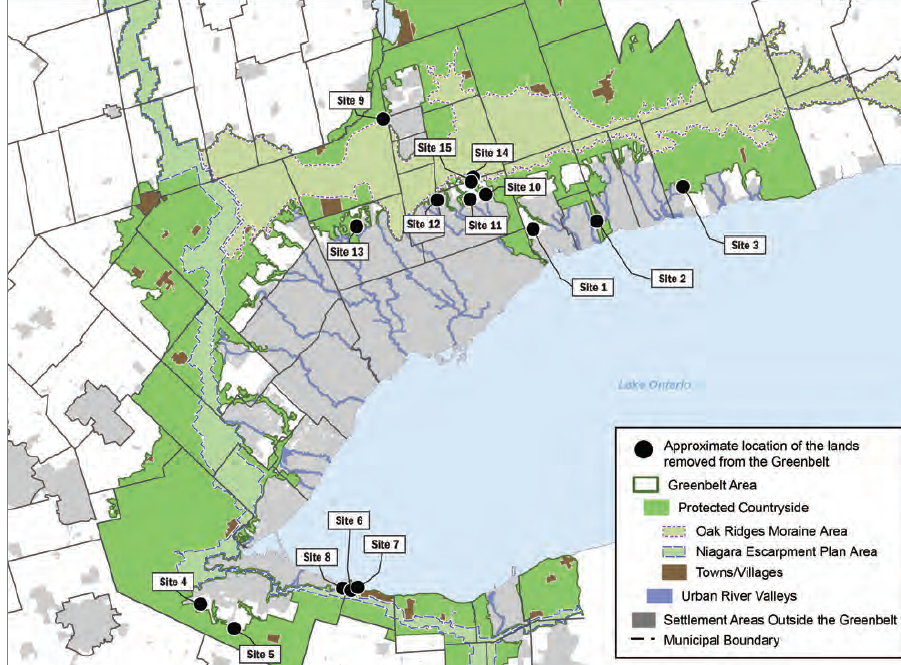 Breaking up the Greenbelt was never really about providing new homes for the masses. The AG’s says it well in her report… Breaking up the Greenbelt was never really about providing new homes for the masses. The AG’s says it well in her report…
The Ministry of Municipal Affairs and Housing (Housing Ministry) had already allocated the entirety of the 1.5-million-unit housing target to municipalities in October 2022—one month before the government’s proposal to remove land from the Greenbelt.
The government and the Housing Ministry did not have evidence that removing land from the Greenbelt was needed to meet the government’s housing goals.
Ontario’s Housing Affordability Task Force determined that a shortage of land was not the cause of the province’s housing challenges and that the Greenbelt and other environmentally sensitive areas must be protected.
Chief Planners in the regions of Durham, Hamilton and York—which are home to all 15 sites removed from the Greenbelt—told us that Greenbelt land was not needed to meet the housing targets assigned to them by the Housing Ministry and that there is sufficient land outside the Greenbelt in their regions that is already or easily serviced.
The Regional Planning Commissioners of Ontario, a group of senior municipal planning leaders from across Ontario, stated it does not support the removal of lands from the Greenbelt as a necessary step to address Ontario’s housing needs.
Ford has attempted to justify this gift to developers by claiming he is, in turn, adding even more land to the Greenbelt. Couldn’t he have designated those those additional lands for housing instead of robbing the Greenbelt? The Ministry of Agriculture, Food and Rural Affairs indicated about 83 per cent of the area being removed is classified as prime agricultural land having the highest quality and capability for agriculture. And then there are the vital wetlands, 117 alone in the Duffins Rouge Agricultural Preserve.
Perhaps just as disturbing is how all of this was done. Again, the AG report says it well…..
The way the government assessed and selected lands for removal from, and addition to, the Greenbelt was not publicly transparent, objective or fully informed, and was inconsistent with the vision, goals and processes of the Greenbelt Plan, as well as previous amendments to the Greenbelt boundary.
Opening the Greenbelt for development was not needed to meet the government’s goal of building 1.5 million housing units over the next 10 years.
About 92% of the acreage removed from the Greenbelt was from five land sites passed on to the Housing Minister’s Chief of Staff from two developers, including a land site associated with a third developer.
Assessment criteria provided by the Housing Minister’s Chief of Staff were altered and facilitated the removal of land sites from the Greenbelt.
The proposal prepared by the Housing Ministry—signed and approved by the Deputy Minister of Housing and the Housing Minister, and provided to Cabinet (including the Premier) to inform the decision to change the Greenbelt’s boundary—did not clearly and correctly explain how the proposed land sites had been identified, assessed and selected for removal.
Based on our interviews, other political public service staff in the Minister’s Office, the Premier’s Office and non-political public service staff in Cabinet Office, indicated that they were similarly unaware of how specific properties were identified.
The government did not assess financial impacts such as serviceability costs, taxation impacts and land value impacts of Greenbelt boundary changes.
The 2022 Greenbelt amendments were made without regard for environmental and agricultural risks, were contrary to the Greenbelt Plan’s vision and goals of providing permanent protection to key agricultural lands and natural features, and may lead to adverse environmental and agricultural impacts.
The Province did not make sufficient efforts to consult the public in a meaningful way or to analyze all of the comments received from the public consultation process required by the Environmental Bill of Rights,
Finally, the AG suggested that the windfall profit to the developers was something like $8.3 Billion. What would you call that?
 Ray Rivers, a Gazette Contributing Editor, writes regularly applying his more than 25 years as a federal bureaucrat to his thinking. Rivers was once a candidate for provincial office in Burlington. He was the founder of the Burlington citizen committee on sustainability at a time when climate warming was a hotly debated subject. Ray has a post graduate degree in economics that he earned at the University of Ottawa. Tweet @rayzrivers Ray Rivers, a Gazette Contributing Editor, writes regularly applying his more than 25 years as a federal bureaucrat to his thinking. Rivers was once a candidate for provincial office in Burlington. He was the founder of the Burlington citizen committee on sustainability at a time when climate warming was a hotly debated subject. Ray has a post graduate degree in economics that he earned at the University of Ottawa. Tweet @rayzrivers
Background links:
AG Report AG News Release Oligarchy

 By Pepper Parr By Pepper Parr
August 7th, 2023
BURLINGTON, ON
While in Hamilton handing out federal funds last week Prime Minister Justin Trudeau said there’s “simply not enough places for people to live” and said more initiatives like the one he was handing out money for are needed to create affordable housing in Hamilton.
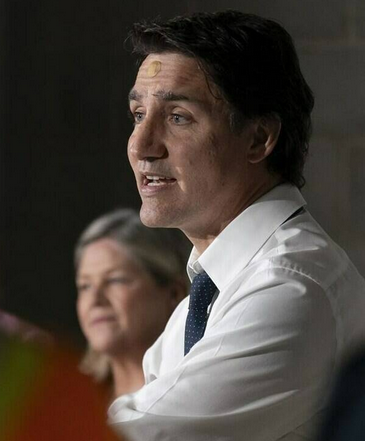 Did Andrea Horwath, sitting beside Prime Minister Justin Trudeau. hit him or is that band aid on his forehead something he get when the wife he is now separated from took a whack at him as she was walking out the door? He also said: “Housing isn’t a primary federal responsibility, not something that we have directly carried out. But it is something that we can and must help with,”
It was a bit of a mixed message and a major disappointment for those who were expecting the federal government to be deeply involved in the housing crisis.
It was the federal government that made the decision to bring millions of people to Canada to help with the labour shortages. One would expect them to be quite a bit more than at the table when the housing needs were being worked through.
The federal government has the Central Mortgage and Housing Corporation (CMHC) in place; an organization that has led a number of very innovative and successful housing development initiatives across the country.
Is it too much to ask that someone- maybe the new Minister of Housing- to come up with a major initiative?
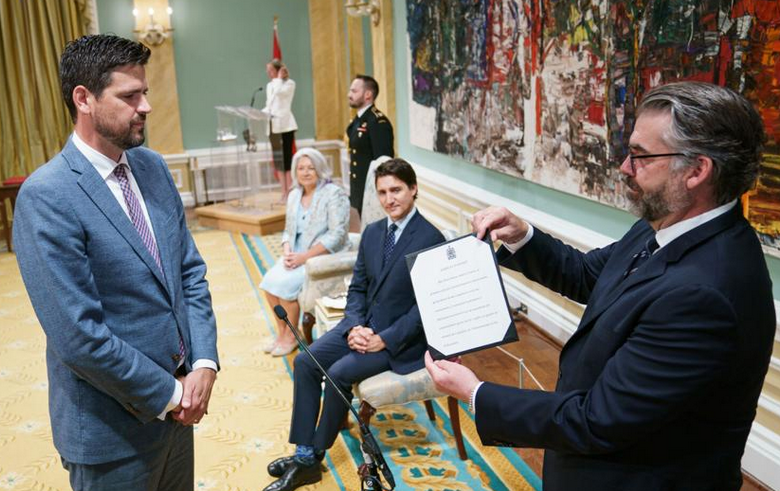 Sean Fraser being sworn in as Housing, Infrastructure and Communities He holds a law degree from Dalhousie University, a Master’s degree in Public International Law from Leiden University in the Netherlands, and a Bachelor of Science from St. Francis Xavier University. He represents Central Nova, a constituency in Pictou County in Nova Scotia.
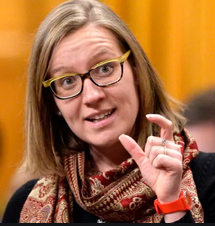 Burlington MP Karina Gould reads her email – let her know what you think. He has the smarts, what we need to know is – does he have an understanding of just how serious the housing situation is ? One would hope that he realizes it is going to get worse before it gets better.
If he takes his que from the Prime Minister (Housing isn’t a primary federal responsibility) we then do have a problem.
Burlington has a Member of Parliament who is heard when she speaks in Caucus – pop her a note expressing your opinion. When an MP gets a couple of hundred emails – they respond. Karina Gould can be reached by email at karina.gould@parl.gc.ca
Salt with Pepper is the musings, reflections and opinions of the publisher of the Burlington Gazette, an online newspaper that was formed in 2010 and is a member of the National Newsmedia Council.

“Around 500 newsrooms closed their doors across the country… and they will continue closing their doors…..The status quo is not working because the money is going to the tech giants.” Canadian Heritage Minister Pablo Rodriguez
 By Ray Rivers By Ray Rivers
July 25th, 2023
BURLINGTON, ON
OPINION
Is Canada’s news media under threat of extinction? Last year, Meta made more than US$23 billion in profit while Alphabet, Google’s parent company, made close to US$60 billion. Meanwhile news organizations, the vast majority being community based, are running out of cash. And even allowing for some new entrants into the business, the future for independent media is worrisome.
 Both owned by the same corporation -they feed each other and control what you get in the way of information in a way that few understand. Increasingly smaller generators of news content are not able to attract enough ad revenue to pay their staff. And to add insult to injury Google and Facebook news platforms don’t pay for the content they extract from the news providers and exhibit as their own. It’s a perfect way to make a profit. Lots of ad revenue, no serious competition and the content is free.
Some of the better known news outfits, like the Toronto Star or the Globe, have instituted paywalls. Some like CNN and the CBC keep their digital operations operating by cross subsidizing from their TV or other services. Some, like the Guardian, are begging for voluntary donations. And the rest are hanging on by a thread, laying off staff or shutting down completely.
 Playing hardball with the federal government. Buying subscriptions is a hard sell when there are a number of free news feeds around. And how many digital subscriptions can any busy middle class family afford and read? Polling indicates that 85 per cent of Canadians do not pay for online news subscriptions, and Canadians under the age of 64 usually check social media sites such as Facebook and Reddit first to get their news.
The federal government in 2021 introduced an income tax credit for subscribers of Canadian digital news organizations to help stem the bleeding. But, while a good idea in principle, it is too little and probably too late to make a difference. It is early days but this indirect subsidy is more like a small bandage on a large gaping wound, rather than a real solution.
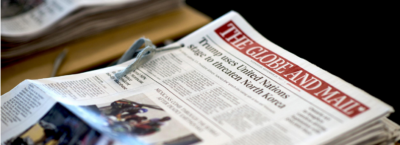 Only online in the future ahead of us? So this year the feds introduced the Online News Act. Based on pioneering Australian legislation, when fully implemented tech companies will be compelled, dragging and screaming, to make a deal and start paying for the content they get from news organizations like the Globe and Mail, the Toronto Star and the Burlington Gazette. The details are still being sorted.
Facebook and Google are not happy. They have announced that once the new law is implemented they will stop hosting Canadian news stories. Google is threatening to eliminate Canadian sources in its search function. And Facebook, playing hardball with the government, has already cut some subscribers off Canadian news content.
This is becoming a game of chicken. The feds, Quebec and BC have retaliated by cutting off the advertising they do with Facebook. According to the Parliamentary Budget Officer, the new legislation could inject around $329 million to the Canadian news industry. But that would only be the case were big tech to cooperate.
And they have mostly in Australia, with Facebook coming back to the table and offering compensation contracts to news content suppliers. However, as Australia is finding, their law is not a panacea. Big tech is paying for content based on the bargaining power of the news organization, more for Rupert Murdock and less for the smaller outfits.
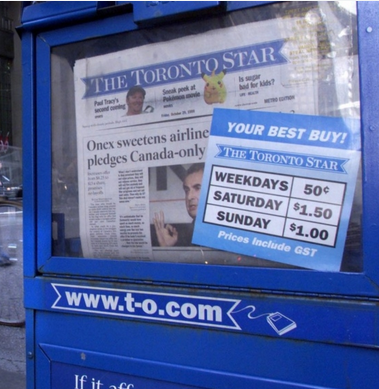 Will newspaper coin boxes disappear? There are a number of other options which could be taken. For example, given the sheer size of the tech companies in the market place, there could be restrictions on their uncompetitive behaviour. Governments could increase their advertising budgets and only advertise with the news makers proper. Perhaps the techs could be taxed out of the news business, allowing news to return to news providers and the tax revenue used as a direct subsidy, perhaps on some per-readership level or other criterion.
Under the current law the tech companies essentially become the employers as well as clients for the small news creators. How long will it be until big tech also dictates what they should be reporting, and more ominously what shouldn’t? Already, big tech uses algorithms to dictate what appears in your e-news in-basket.
Canadians might want to think about better supporting our own national broadcaster, the CBC, rather than relying for news on the big tech transnationals. The CBC has its problems related to programming and identity – what it wants to be when it grows up – but since 1936 the CBC has been an anchor and standard for news broadcasting on our airways. It is worrisome that the recent string of Conservative Party of Canada leaders keep talking about mostly eliminating the CBC.
“Democracy Dies in Darkness” is the motto of the Washington Post, a major US paper with a history going back to 1877. That’s not nearly as old as the Globe and Mail which started operation in 1844 and was printed on the first cylinder press in Canada West,. And there is the Halifax Gazette which began in 1752. Free and accurate information is one of the most important pillars of democracy.
 Ray Rivers, a Gazette Contributing Editor, writes regularly applying his more than 25 years as a federal bureaucrat to his thinking. Rivers was once a candidate for provincial office in Burlington. He was the founder of the Burlington citizen committee on sustainability at a time when climate warming was a hotly debated subject. Ray has a post graduate degree in economics that he earned at the University of Ottawa. Tweet @rayzrivers Ray Rivers, a Gazette Contributing Editor, writes regularly applying his more than 25 years as a federal bureaucrat to his thinking. Rivers was once a candidate for provincial office in Burlington. He was the founder of the Burlington citizen committee on sustainability at a time when climate warming was a hotly debated subject. Ray has a post graduate degree in economics that he earned at the University of Ottawa. Tweet @rayzrivers
Background links:
Australian On-Line – Canada’s On-Line – Digital Ad Revenue – Shattered Mirror –
Government Spending on Facebook – Canadian News on Facebook –

 By Ray Rivers By Ray Rivers
July 4th, 2023
BURLINGTON, ON
“Remember, remember, the fifth of November
Gunpowder treason and plot
We see no reason
Why Gunpowder treason
Should ever be forgot….”
Today’s outlandish fireworks displays can all be credited back to a Chinese alchemist who discovered gunpowder back in the first millennium. Though it could be legitimately argued that Guy Fawkes deserves a lot of the credit. He had been captured planning to blow up the entire English government back in 1605, as part of a group of disgruntled Catholic revolutionaries. Brits have since set aside Nov 5th to celebrate that day in his name with a bonfire and, more recently, fireworks.
The Pilgrims brought the fireworks custom over to the new land and it became fundamental to celebrating US independence Day. Canada has also taken to fireworks in a big way and fireworks shows are pretty much ubiquitous everywhere today to celebrate everything from a national holiday to gender reveal parties.
There are encouraging exceptions, such as Chile, which has a universal ban on these kinds of explosives. And some municipalities such as Mississauga have banned, private citizen fireworks and are supported by the Canadian Association of Fire Chiefs which has called for a complete federal ban on the sale and use of consumer fireworks.
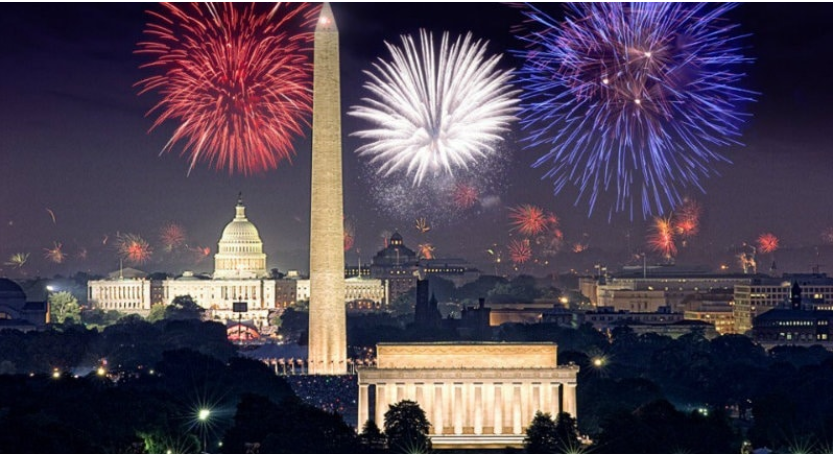 Over 240 million pounds of fireworks are used for celebrations releasing about 50,000 metric tons of carbon dioxide into the environment. But Independence Day in the USA is generally the most polluted day of the year when it comes to air quality. Over 240 million pounds of fireworks are used for celebrations releasing about 50,000 metric tons of carbon dioxide into the environment. That is the equivalent of a single 2,700-acre wildfire. It is estimated that amounts to a 370 percent increase in aerial particulates that day, which can feel like spending an hour on a city street in Beijing during one of its worst smog days.
This year is even worse. With out of control wildfires in northern Canada we have been exporting massive blankets of smokey air south of the border. New York City and Chicago have each taken turns with Toronto and Montreal at being merited with the dirtiest air on the globe. Indeed this is Canada’s worst year ever for forest fires. But nobody should believe that next year will be any better. Already we note that the forest fire season now begins in April instead of the more traditional July.
Wildfires release substantial amounts of organic volatile organic compounds which, when in contact with sunlight, end up creating the intense smog we have been seeing so far this year. Stinging eyes, burning lungs and the acrid stink of burning plastic are all part of the package. Add in vehicle exhaust fumes and those fireworks, and that is a recipe for overcrowded hospitals.
At least we humans have choices when the air outside is sickening. We can go indoors, close all the windows and turn on our air filtration systems. Or, if we need to be outside and are serious about protecting our health, could wear one of those dreaded n95 face masks we used during the pandemic, and hoped to never have to wear again.
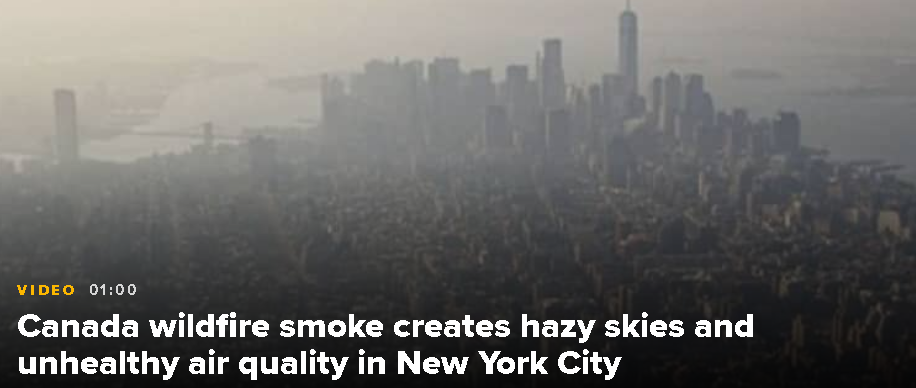
However, for the other creatures in our natural environment there is no such escape. The health effects of smoke on wildlife are the same as for humans, except they are magnified by the fact that birds, for example, are more efficient breathers and retain more particulates. Smoke inhalation can and does kill birds. It impairs their ability to breathe and their ability to forage and sustain themselves. Think of the tiny hummingbird taking in life-giving air at the rate of 250 breaths a minute.
Blowing up substantial quantities of explosives just to enjoy a few minutes of noise and flashes of light is a very high price we pay for all of the unintended consequences. Dogs and other pets, babies and some seniors, for example, are known to suffer trauma and discomfort during fireworks exhibitions.
And did I mention climate change? The federal government has a strategy to reduce carbon emissions from the still important oil sector, associated with significant employment and which still powers our transportation systems. But where is the action on something as avoidable as pointless pyrotechnics shows?
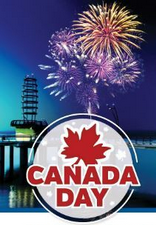 Vancouver and Montreal need to be applauded for cancelling their fireworks displays this Canada Day, Vancouver permanently. But what about Toronto and Burlington? Jurisdictions seem to have no trouble banning gas powered leaf blowers to help reduce air pollution, after all. Vancouver and Montreal need to be applauded for cancelling their fireworks displays this Canada Day, Vancouver permanently. But what about Toronto and Burlington? Jurisdictions seem to have no trouble banning gas powered leaf blowers to help reduce air pollution, after all.
And if anybody really thinks they’d like to see real fireworks in action, perhaps they could wander over to Ukraine, a country which has seen more than its fair share of fireworks. Isn’t that the kind of thing that Guy Fawkes was really all about when he left us a legacy of pyrotechnics?
Background links:
Fireworks Pollution: Guy Fawkes Day: Canada Day Explosions:
Wildfire and Infections
Masking
 Ray Rivers, a Gazette Contributing Editor, writes regularly applying his more than 25 years as a federal bureaucrat to his thinking. Rivers was once a candidate for provincial office in Burlington. He was the founder of the Burlington citizen committee on sustainability at a time when climate warming was a hotly debated subject. Ray has a post graduate degree in economics that he earned at the University of Ottawa. Tweet @rayzrivers Ray Rivers, a Gazette Contributing Editor, writes regularly applying his more than 25 years as a federal bureaucrat to his thinking. Rivers was once a candidate for provincial office in Burlington. He was the founder of the Burlington citizen committee on sustainability at a time when climate warming was a hotly debated subject. Ray has a post graduate degree in economics that he earned at the University of Ottawa. Tweet @rayzrivers

 By Ray Rivers By Ray Rivers
June 21st, 2023
BURLINGTON, ON
On Monday four federal by-elections were held and the results were much as anyone might have guessed. Nothing changed except that four new MPs will take their seats in Parliament.
Marc Garneau’s former riding in Montreal was retained by the Liberals as was that of the late Jim Carr, in Winnipeg. In that case Carr’s son kept the riding for the Grits. And the Tories retained their hold in rural Manitoba to replace Candice Bergen who threw in the towel. Ontario’s Oxford country also stayed Tory though former Conservative MP Dave MacKenzie, called his party on dirty tricks and ended up supporting the Liberal candidate.
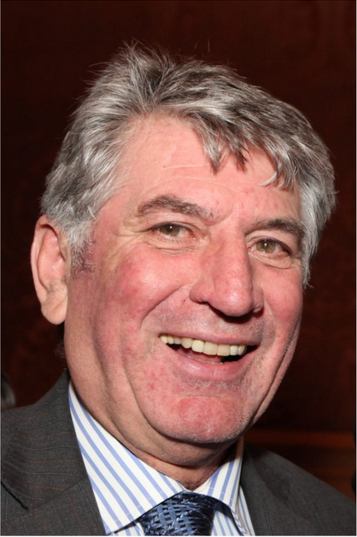 Dave McKenzie – Oxford in Ontario 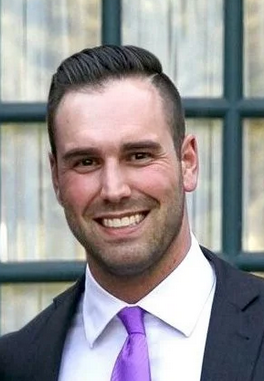 Ben Carr, Winnipeg South, MB So what did we learn from these by-elections? Not much. These ridings were about as safe for their respective parties as any in the country. It was a test of tribal loyalty for the most part. National polling indicates that Canadians are getting tired of the Trudeau government, but that would probably be just as true for any federal government after 8 years in power. Tired or not the 51 year young Trudeau heir has promised to lead his party into the next general election, which could come at any time – despite his deal with Mr. Singh to keep him in power until 2025.
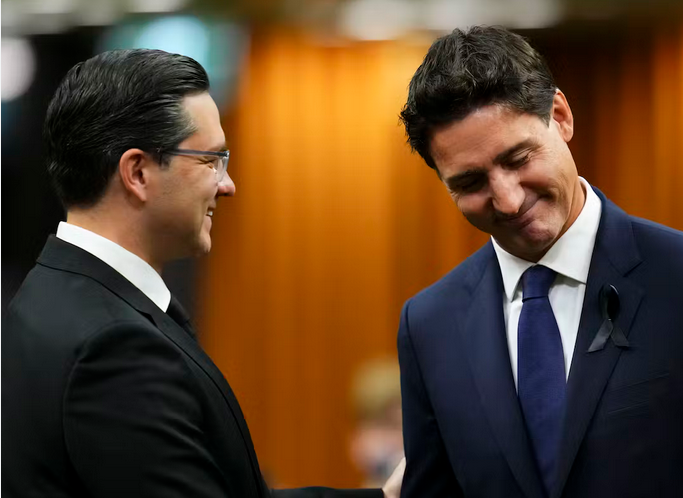 Justin Trudeau and Pierre Poilievre – they will face each other in the next federal eleection. When? That’s the big question. If the public is getting weary of the Liberals, that was not the message that anyone could take from the by-elections. If anything Mr. Trudeau’s party did better than expected, including a relatively close run in true blue Oxford. And recall that sitting governments normally suffer in mid-term elections as disgruntled voters are free to vent their dissatisfaction without upsetting the political apple cart. But that didn’t happen.
City folk generally prefer the Liberals while the Tories tend to dominate in farm country. It’s always been like that. The exceptions are when the public decides it’s time to kick the bums out as we did with the Mulroney crowd or Pierre eventually. And of course there are the times when some bright light inspires the masses to cross partisan lines, as was the case with both of the Trudeaus in their days.
 Anna Gainey in Quebec – Branden Leslie in Manitoba 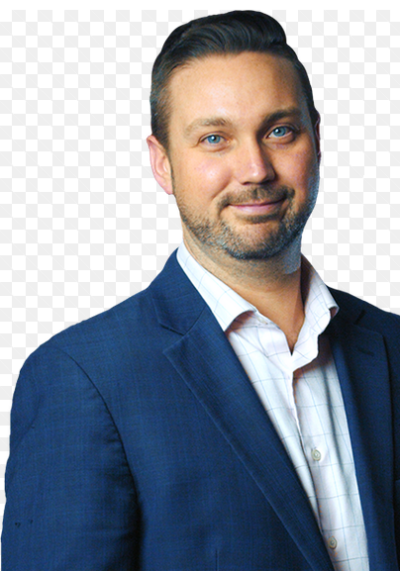 In addition to the urban/rural divide there is the east/west split, which today has been spirited mostly by the Alberta political mafia. Of course it’s really only anti-Trudeau. But it can’t be smart to be underrepresented federally even if you hate the leader’s guts. So an ongoing Liberal presence in that Manitoba riding which they nailed should be looked at as just a blessing in disguise. In addition to the urban/rural divide there is the east/west split, which today has been spirited mostly by the Alberta political mafia. Of course it’s really only anti-Trudeau. But it can’t be smart to be underrepresented federally even if you hate the leader’s guts. So an ongoing Liberal presence in that Manitoba riding which they nailed should be looked at as just a blessing in disguise.
And that Winnipeg South riding for some reason had an incredible number of independent candidates, each getting little more than their own votes back. Talk about democracy gone berserk. Did these folks think they were running for mayor of Toronto?
The Tories are rejoicing that their almost leader only a little while ago, Maxime Bernier, suffered another set back in trying to get his so-called People’s Party of Canada into the hallowed halls of Parliament, finishing second against the real Conservative. But he had a pretty radical or reactionary or, some might just say rubbish, platform, so go figure.
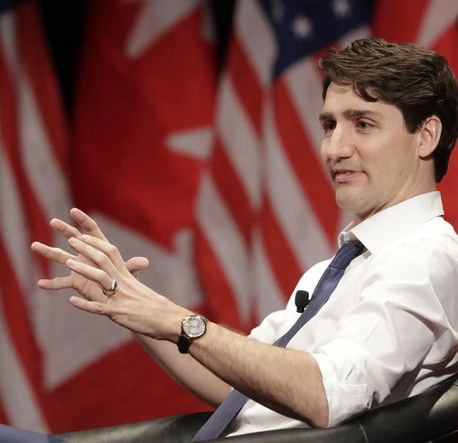 Prime Minister Justin Trudeau – reaching for a fourth term? Don’t go looking at these four by-elections as some sort of prescription for the big one yet to come. There are no tea leaves here, no foreboding of fortune or failure for Mr. Trudeau or Mr. Poilievre as they prepare their cannons for the big fight yet to come. This is just what we get in a Canada divided, more than ever, and mostly along tribal lines.

Ray Rivers, a Gazette Contributing Editor, writes regularly applying his more than 25 years as a federal bureaucrat to his thinking. Rivers was once a candidate for provincial office in Burlington. He was the founder of the Burlington citizen committee on sustainability at a time when climate warming was a hotly debated subject. Ray has a post graduate degree in economics that he earned at the University of Ottawa. Tweet @rayzrivers
Background:
Election Results – Trudeau’s Next Election – An Interpretation –

 By Pepper Parr By Pepper Parr
June 20th, 2023
BURLINGTON, ON
Come Canada Day the Mayor of Burlington will have what are called Strong Mayor Powers.
Just in case you don’t understand what those powers are about, let me list them for you.
Strong mayor powers and duties include:
• Choosing to appoint the municipality’s chief administrative officer
• Hiring certain municipal department heads, and establishing and re-organizing departments
• Creating committees of council, assigning their functions and appointing the chairs and vice-chairs of committees of council
• Proposing the municipal budget, which would be subject to council amendments and a separate head of council veto and council override process
• Vetoing certain by-laws if the head of council is of the opinion that all or part of the by-law could potentially interfere with a provincial priority
• Bringing forward matters for council consideration if the head of council is of the opinion that considering the matter could potentially advance a provincial priority
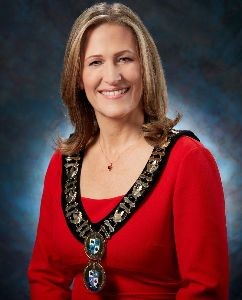 Mayor Marianne Meed Ward Is this a problem for Mayor Marianne Meed Ward? Or is it an opportunity? Hard to tell – she has said she doesn’t need them and never wanted them. Her statement as Chair of the Big City Mayors Organization was not as resounding as I would have liked it to be – but she was speaking for an organization.
Meed Ward has not gotten into the habit of doing interviews with media so there hasn’t been an opportunity to ask questions directly. To the best of our knowledge Mayor Meed Ward has never held a media event. She uses social media extensively and once said she had 17 points from which she can communicate with the community. They are all one way channels.
There is a scenario that could have Meed Ward using some of those new powers.
The province has said it needs to build 1.5 million new homes by 2031. The province doesn’t build homes, nor does a municipality. Homes are built by developers.
The city sets out the rules that developers have to adhere to.
One of the rules is to comply with the Official Plan which the developers aren’t very pleased with. So they appeal to the Ontario Land Tribunal – those appeals take a considerable amount of time and the city tends to lose most of the appeals.
What the city has undertaken to do is build 29,000 new homes by 2031 – they signed a pledge with the province to do just that.
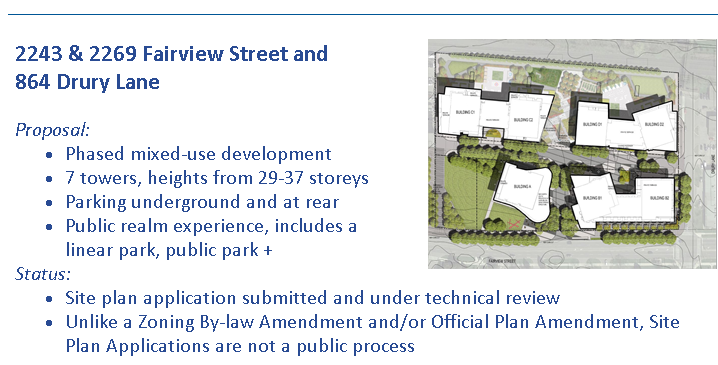 Application has been approved: Seven (7) residential towers on top of four (4) mixed use podiums. Overall heights ranging between 29 and 37 storeys. Podium heights ranging from 2, 5 and 6 storeys. A total of 2,494 residential units of mixed type and tenure. 3993 m2 of commercial space. 41, 821 m2 of shared amenity space. Five (5) levels of underground parking and a four (4) storey parking structure which will be integrated with the residential units. Pedestrian connections to the surrounding neighbourhood and Burlington GO Station. City Council was successful in getting the Urban Growth Centre boundary moved north which pushed a lot of development north of Caroline and along Fairview where a very large development is planned. But there are no shovels in the ground yet.
Experts seem to agree there is no joy for developers in the rental market – the big bucks are in high end condos – not what Burlington needs.
With Strong Mayor powers would Meed Ward be able to get some of the badly needed housing built? Go back and look at the power she will have come Canada Day
The fear is not what Meed Ward would do – it is about what a future Mayor could do. There are two members of this Council who have said to me directly that they would like to be Mayor – both made the statements before they were halfway through their first term of office.
In the last election we saw a candidate with no local history, a campaign committee that consisted of a close friend with his home phone number as his campaign number to call. Given what little effort was put into the campaign he did remarkably well – and is understood to be ready for another campaign.
It would not be difficult for special interests to find a person, work with that candidate to build a public profile and pump thousands of dollars into the campaign.
Burlington has two habits that make something like this possible.
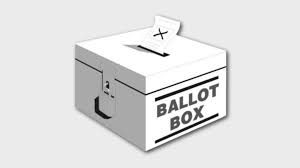 Voter turnout is traditionally low. In 2022, 27.6 per cent of eligible voters in Burlington voted in the municipal election; in the 2018 municipal election, 39.79 per cent of eligible voters cast a ballot. Voter turnout is traditionally low. In 2022, 27.6 per cent of eligible voters in Burlington voted in the municipal election; in the 2018 municipal election, 39.79 per cent of eligible voters cast a ballot.
And, for the most part, most residents, are woefully ignorant at how important city hall is to the life they live.
Something to think about.
Salt with Pepper is the musings, reflections and opinions of the publisher of the Burlington Gazette, an online newspaper that was formed in 2010 and is a member of the National Newsmedia Council.

 By Pepper Parr By Pepper Parr
June 18th, 2023
BURLINGTON, ON
OPINION
Jeff Hill is a Deputy Chief with the Halton Regional Police Service.
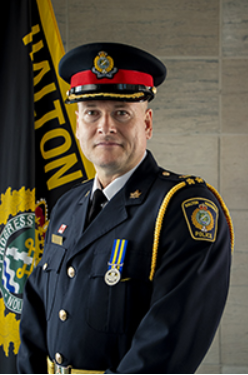 Jeff Hill: Deputy Chief of Regional Operations Halton Regional Police Service where he oversees Regional Investigative Services (including Intimate Partner Violence, Frauds, Victim Services Unit, Child Abuse and Sexual Assault Unit, Intelligence, Forensic Identification, Drugs and Human Trafficking, Tech Crime, and Homicide) He was one of several people who delegated at City Council recently on the Intimate Partner Violence (IPV) incidents in Burlington.
He reported that last year the police responded to 3500 calls, 1346 of them came from Burlington. 341 arrests were made.
As of last week the police attended on 544 incidents so far this year.
It was numbers like this that brought the problem to council where they passed a resolution declaring that Intimate Partner Violence had reached epidemic levels.
Deputy Chief took the issue several steps further.
He said “the police alone are not the solution to this issue and we will not arrest our way out of this epidemic. If we don’t do something different, the problem will continue to grow.
“Intimate partner violence cannot be a private issue. We cannot be silent about the violence that is occurring. The resolution before you is a start but we must do something to raise community awareness and education on the surveillance of the issue with the necessity for a holistic approach from the community as a whole; one entity cannot do this alone.”
Hill made an additional comment that was chilling. After saying he was not a big social media participant he then said that whenever he tweeted about IPV, the number of people tuning in dropped. “People don’t want to hear about the issue.”
Hill closed his delegation saying in “the last 40 years the Region alone has seen 22 women murdered at the hands of their partner, a woman was murdered every other year in our region alone. This absolutely has to stop.”
The Region has a 24 member intimate partner violence unit that responds to every call. The victims are supported and charges are laid. The police believe that they hear from about 30% of the women who are victims. The others live in fear believing that they will not be believed or supported.
The victims are one part of the issue – the men who beat their partners are the other side. Sending them to jail isn’t going to change the behaviour – that is not what jails do.
There has to be programs that work with men to change their behaviour. Having groups of men walk in women’s high heeled shoes does a little bit to bring the issue to public attention. I doubt very much that it changes behaviour.
Research has to be done to understand why men feel they can beat their partners. It is certainly an anger management problem – but I suspect there is much more than that to it.
Hill came close when he said there had to be “a holistic approach from the community”.
The shape and form that approach takes has yet to be determined. It can start with men saying to men: You cannot do that and then helping those that do get the help they need.
Salt with Pepper is the musings, reflections and opinions of the publisher of the Burlington Gazette, an online newspaper that was formed in 2010 and is a member of the National Newsmedia Council.

 By Pepper Parr By Pepper Parr
May 29th, 2023
BURLINGTON, ON
OPINION
Remembrance Day and The Battle of the Atlantic Sunday have always been important to me.
I was a Sea Cadet as a youth and then served in the Canadian Navy – I was an Able Seaman aboard HMCS Haida that is now tied up in Hamilton.
In 1914 and 1939 we sent young men and women into war; thousands didn’t return and many of those who did, were damaged for life.
 Hundreds gather at the Cenotaph on Remembrance Day to honour those who served, remember those who did not return and treasure the democracy they defended. Every November 11th, hundreds of Burlington residents gather at the Cenotaph to remember those we lost, honour their sacrifice and celebrate what we gained – we are a democratically fee nation.
We have a Charter of Rights and Freedoms, we elect our representatives at the Federal, Provincial, Regional and Municipal levels. As a nation, we have fought to have the fundamental right to freely select those who will govern us. It is both our privilege and our responsibility to make informed choices and vote.
Over the last two weeks we have highlighted the way the Councillor for Burlington ward 1 manages his personal financial interests and the way he has chosen to represent the people who elected him. We feel that he is unable to represent his constituents in an open and unbiased fashion. Despite our journalism efforts there is no indication from Kelvin Galbraith that there will be any change. He simply does not seem to understand his conflicted position. There also seems to be an equal problem with his constituents and opponents holding him accountable.
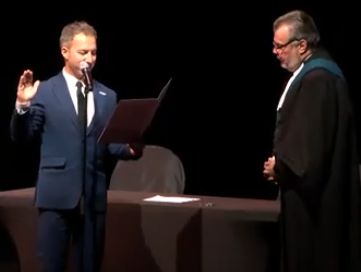 Kelvin Galbraith swearing an oath to serve his constituents. In the 2022 municipal election the candidate in ward 1 did not tell the voters that he had been advised by the Integrity Commissioner that there would be occasions when he would have a Conflict of Interest due to the location of some of his business interests. The other 2022 candidate in the ward became aware of the Integrity Commissioner’s report 11 days before the election but decided not to advise voters. To do so would not have been playing ‘dirty political games’ or ‘hitting below the belt’. Rather it was his duty to ensure that the constituents of ward 1 were properly informed before they made their choice. He failed to do so.
The information was made public by a resident who keeps a close eye on civic matters and has made repeated but unsuccessful efforts to hold Councillor Galbraith accountable. He has been confronted with apathy, indifference and, we believe, systemic incompetence.
What Burlington seems to have difficulty with is taking the time to ensure and insist that the men and women they elect are accountable and transparent. We wait until the situation becomes intolerable or uncomfortable, for whatever reason, and vote for wholesale replacements. It is an all or nothing scenario repeated every 4 years. Or so it seems.
The Gazette has published five articles on election campaign donations. Those articles have been read by thousands of people. The Aldershot Insider, a Facebook page, carries a number of comments on the issue – non favourable to the Council member.
 The Councillor for ward 1 has chosen not to comment and we were informed that he was advised to not respond. It’s an old issues management truism that when you have a fiery issue you don’t provide it with oxygen. Stay silent and it will pass; people always forget. The Councillor for ward 1 has chosen not to comment and we were informed that he was advised to not respond. It’s an old issues management truism that when you have a fiery issue you don’t provide it with oxygen. Stay silent and it will pass; people always forget.
And that is where we have a real problem. It appears that the truism is 100% true. The reason that our elected representatives are not transparent is that they don’t have to be. In fact, it’s a serious disadvantage to them if they are. The reason that they are not accountable is that we don’t hold them to account.
As citizens we need to exercise our democratic responsibilities – be informed, be actively involved and vote. In the final analysis, Galbraith is the self-made problem of the people of Ward 1.
Salt with Pepper is the musings, reflections and opinions of the publisher of the Burlington Gazette, an online newspaper that was formed in 2010 and is a member of the National Newsmedia Council.

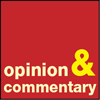 By Blair Smith By Blair Smith
May 22, 2023
BURLINGTON, ON
Burlington Today reports that:
Mayor Marianne Meed Ward says there will “absolutely not be a City of Halton.”
She told BurlingtonToday that Burlington council has agreed to support an assessment of Halton Region and be an active participant in that process, after passing a motion at its May 16 meeting.
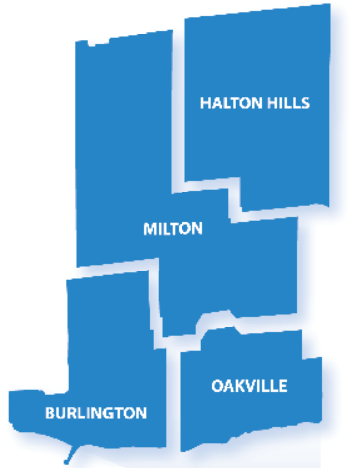 Burlington, along with Oakville, Milton and Halton Hills are gathered together as a Region. The Region has its own Official Plan that Burlington must comply with. The Region handles Social Services, Waste and water management, some roads, police and Emergency Services. It levies taxes which the city collects. “Everything else is on the table,” she said, adding things like transit could be uploaded to the Region and other things downloaded, “but it must deliver better service for better value.”
To be polite, here we go again with our Mayor answering a question that may have been relevant six months ago but hardly now in the face of Minister Clark’s announcement on Thursday.
Actually, it’s puzzling why BurlingtonToday would choose to report the Mayor’s comments since their context is now rather dramatically changed. And just to be completely accurate, “the motion” was tabled as a “consent item” at the May 16th Council meeting with no questions, comments or debate. So much for being “an active participant”.
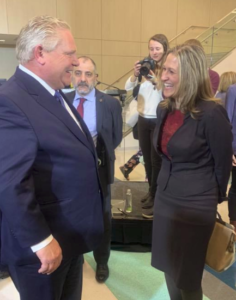 Mayor Marianne Meed Ward greeting Premier Doug Ford during a tour of Joseph Brant Hospital. Indeed, there will certainly not be “a City of Halton”; there may be no Halton at all. There may be no City of Burlington either, although I imagine that Meed Ward is eager to accept the prospects of a Mississauga scenario with abundant Strong Mayor powers.
The reality is that the Ontario Government is once again rolling the municipal dice and the target – not for economies of scale and operational efficiencies but for better management of new housing targets – is the Upper Tier.
All the services that were consolidated will be disaggregated into the emancipated municipalities and the costs, both of dissolution and of creating needed service depth and structure, will be borne by the taxpayer.
Will Burlington benefit if Halton Region is dissolved? It is impossible to say at this point but I personally don’t like the prospects. The economics just don’t make sense.
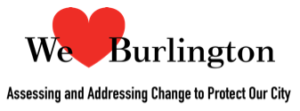 When a group of us fought regional amalgamation in 2019 we believed that we were protecting local voice and decision-making. Today, we would be far less enthusiastic. Even in 2019 we acknowledged and supported the benefits of further consolidation of certain services and functions at the regional level – things like information technology, fleet management, common purchasing, vendors of record and transportation. When a group of us fought regional amalgamation in 2019 we believed that we were protecting local voice and decision-making. Today, we would be far less enthusiastic. Even in 2019 we acknowledged and supported the benefits of further consolidation of certain services and functions at the regional level – things like information technology, fleet management, common purchasing, vendors of record and transportation.
However, we felt that cities, such as Burlington and Oakville, should have strong influence over how they grew as communities and should not be amalgamated into an indistinct ‘melting pot’. That would still be our belief today despite the failure of our Council to deliver on their promises and a truly remarkable opportunity.
It is time for honest and direct engagement with Burlington’s citizens – straight talk about what the possible impacts of Upper Tier dissolution are. Given the fact that the municipalities left standing and perhaps whole will still be creatures of the province, subject to provincial direction and control, but now tasked with funding standalone services, it is difficult to be enthusiastic.
Related news story:
The article that brought out the opinion.

 By Pepper Parr By Pepper Parr
May 5th, 2023
BURLINGTON, ON
OPINION
Next Monday a large group of people who oppose what the provincial government wants to do to the health system we have will do their best to fill parts of the Public Gallery in the Legislature .
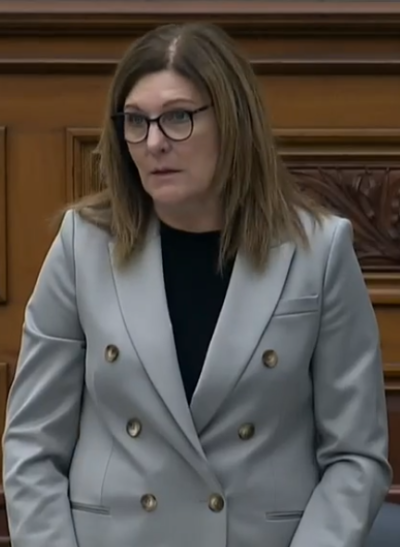 Natalie Pierre speaking at Queen’s Park While the group sits in the Gallery Natalie Pierre will be in her seat and when there is a vote she will stand and vote with the government and I wonder how she will feel.
I met with Natalie for a very short period of time during the election. I was impressed – there was a sense of empathy that I felt during the short period of time I was able to talk with her.
There was supposed to be a longer follow up interview with Natalie but her handlers made sure that didn’t happen.
Natalie was new to the game and chose to follow directions rather than follow her instincts and inquire.
Her years at Sheridan College, where she worked in Human Relations, was a time when she developed the ability to listen.
I find myself wondering what Natalie will think is as she glances at the people in the Gallery and wondering if she will ask herself: Am I serving those people or am I one of a number of people in this place, here to support a government that I am a part of ?
The woman who represented Burlington before Natalie was elected didn’t have the ability to understand what people wanted or needed. She was an MPP looking out for herself.
The sense I gained when I talked to Natalie was that she was genuine; real and capable of knowing what people needed.
I expect Natalie will vote with the government knowing full well that to not vote will kill and chance she might have to grow is as a legislator.
My early sense was that this one was different.
There has not been an opportunity to interview Natalie since she was elected. Whatever her office sends out to media doesn’t come our way.
It has been our practice to publish the maiden speech of every member of both Parliament and Queen’s Park. We were in touch with Natalie’s office asking if they would let us know when she was to speak.
We didn’t hear from her office then and you didn’t get to hear what she had to say.
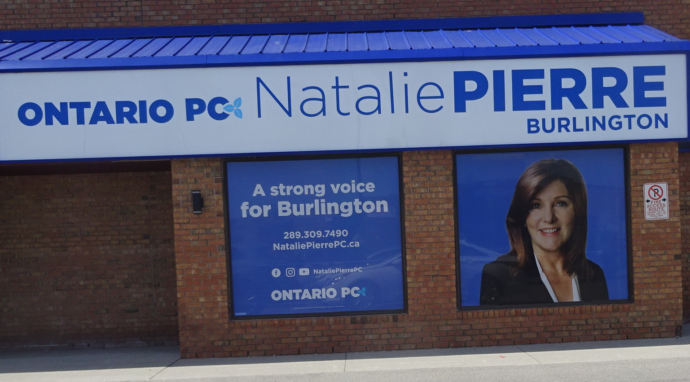 So far the voice of Natalie Pierre has not been that strong. We understand that some people, elected to serve the public, aren’t comfortable with the way we report events. Their job is not to be comfortable but to be available to accredited media.
Were we to publish puff pieces often enough we would be made very welcome.
Our approach it to work at doing our best to inform the public so that they can make informed decisions.
Going forward we will work a little harder at getting through to Natalie Pierre.
Salt with Pepper is the musings, reflections and opinions of the publisher of the Burlington Gazette, an online newspaper that was formed in 2010 and is a member of the National Newsmedia Council.

 By Ray Rivers By Ray Rivers
April 29th, 2023
BURLINGTON, ON
It’s a Coronation – Does Anyone Care?
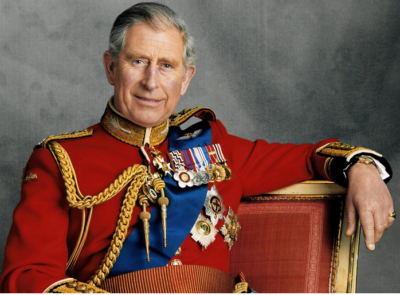 King Charles Philip Arthur George III There is not much promotion that I’ve seen over King Charles’ upcoming coronation. And it’s only a few days away, yet I can’t seem to find anyone keen to join me to watch and celebrate the event.
This disinterest may have something to do with Charles himself. Those of us who cared about Diana have never forgiven him for casting her aside and for what followed – her tragic and untimely death. The highly successful Netflix series, the Crown, also may have tempered our love of the royals as it demystified their lives. Though clearly privileged, they were portrayed as pretty ordinary folks in many ways, with flaws and warts just like the rest of us.
Princess Anne was something of a spoilt brat. Sexual exploitation had stained Prince Andrew thanks to his seedy association with Jefrey Epstein. Then, there was this royal passion for things Nazi, including the former King Edward apparently designated to be Hitler’s puppet in London. And Prince Phillip also had a softness for the fascists.
That makes some sense since a monarchy traditionally is just another authoritarian system of governance. It is leadership gained by breeding rather than by popular vote. So today a growing number of Brits, mostly younger ones, would like to ditch the royals. Over 40%, would prefer an elected head of state instead of an inherited, according to one survey.
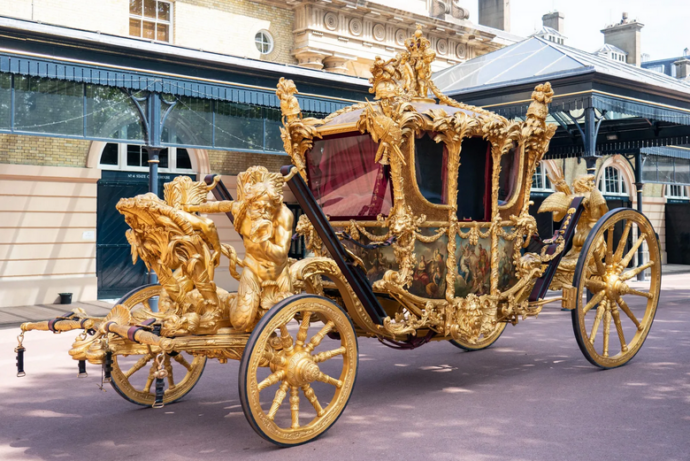 Weighs tonnes; is heated and air conditioned. Older Brits on the other hand seem content with the status quo, so this may just be an age thing. After all, Charles is no spring chicken, and despite his longstanding concern for the environment, doesn’t seem to relate well to the younger generations, even in that regard. Ageism is a reality in politics these days. One only has to consider the mixed reception Joe Biden is receiving in his bid for another presidential campaign, despite a very impressive record of public achievements during his first term.
The monarchy serves a useful role as head of state, not only in the UK but also through its representatives in Canada and other commonwealth nations. And here in the colonies the Governor General, like Supreme Court judges and senators, is appointed – making them more like public servants than politicians. These appointees owe their loyalty to the government of the day and the rule of law. When Stephen Harper wanted to avoid losing a non-confidence vote in 2008 he went to the Governor General for permission to prorogue and she did what she was told.
Democracy is under attack, more today than at any time since the second world war. We need look no further than the Jan 6th attempted insurrection at the US Capitol building, an act precipitated by the ‘big lie’ that Trump was cheated out of the presidency. For that, some would blame social media and cable news channels, like Fox, for the misinformation and outright lies that makes us wonder what exactly we should believe – if anything at all.
There has also been a growing trend for opposition politicians to engage in hate mongering and character assassination. If you say a lie enough times, folks may start to believe it. Once upon a time there was some semblance of accountability for one’s actions in the political theatre. Yet Donald Trump’s popularity seems to be rising, hand-in-glove as his criminal behaviour is uncovered and he faces a growing number of criminal court cases.
Indeed we see the same phenomenon happening back here in the great white north. Instead of being evicted from his party’s caucus for embracing and supporting the insurrectionist criminals (truckers) in Ottawa back in February last year, Pierre Poilievre was rewarded. He was promoted to become leader of Canada’s official opposition party for his supporting role in shutting down the nation’s capital.
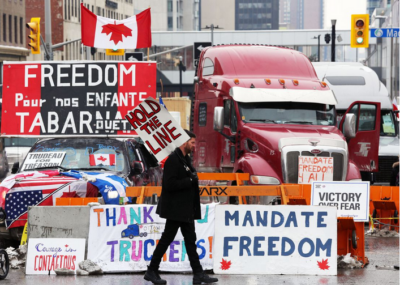 Trucks parked on the streets of Ottawa during a long civic disruption. Voter turnout in last year’s municipal elections was one of the lowest ever, as two thirds of voters stayed home. Being effectively disenfranchised, there is little reason to leave your TV sets and run to the polling station to cast a ballot in an election which more and more means less and less. Premier Ford slashed representation for Toronto residents by half as one of his first acts.
Ranked ballots to ensure that only the most popular candidate would win were banned. Ford has overruled the municipalities and conservation authorities taking away their power to manage local development decisions. He made it harder and moire expensive for individuals and councils to challenge his development decrees. And then he became just another a lying politician, raising questions of corruption, by breaking his promise to protect the provincial greenbelt from more urban sprawl.
Alberta has just passed it’s own sovereignty legislation, a declaration of war on the federal government and on Canada’s efforts to rein in its carbon footprint. It is a cheap stunt by politicians more concerned with the politics of division than the reality of what is happening to our planet. Alberta’s ongoing anti-Canada monologue has become more of a threat to Canadian unity than Quebec’s attempts at independence ever were. At least Quebecers had legitimate complaints about their linguistic and cultural rights in this country.
We are in troubled times – a nation divided by the very political leaders who should be uniting us. Is it any wonder that voters are disillusioned? And if we can’t be positive about our local or federal/provincial governance, why should we even give a hoot about what is going on in London this coming weekend?
My parents were not of British stock but they purchased a brand new TV just to watch Queen Elizabeth’s coronation. And we would crowd around that set to watch her annual Christmas address every year. We went to see Charles and Diana when they came to Vancouver in the ’80’s and like many Canadians wept when the Princess senselessly died in that car accident.
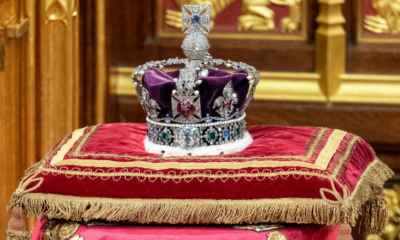 The Crown that will be used at the Coronation on May 6th I don’t consider myself a royalist. In fact, I am rather indifferent about the Crown. But I still plan to watch King Charles and the spectacle of the formal coronation on Saturday May 6th, even if I have to watch it alone.
It’s a great excuse for a spring-time party. And, it may be the last coronation I ever get to watch, even if the British public doesn’t replace that inbred crowd with an elected president as their head of state.
Related news story:
How Ontario plans to celebrate the Coronation
Background:
Canada is a Constitutional Monarchy with a Parliamentary Democracy – we are stuck with a King
About those Royal Carriages – How many are there.
Andrew in Bed with Epstein
Nazis in the Royal House
Ditch the Royals

 By Pepper Parr By Pepper Parr
April 20th, 2023
BURLINGTON, ON
OPINION
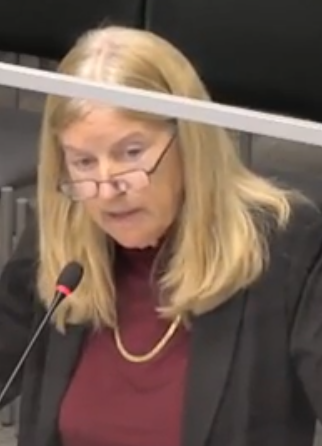 Janice Atwood Janice Atwood, a Principles Integrity partner, acquitted herself very well earlier this week when she reported to city Council on the report she had written on a complaint sent to the Integrity Commissioner related to the behaviour of a member of the Committee of Adjustment (CoA).
Council listened to the CoA member Nick Leblovic as he explained what he had done and both challenged the conclusion reached by the Integrity Commissioner and impugned the reputation of the professional planner who was representing the complainant.
During his delegation, Leblovic claimed that the whole investigation, which he estimated to have taken 50 hours at $235 per hour, would have been unnecessary had the Integrity Commissioner agreed to meet with him and discuss the complaint. In fact, Ms. Atwood did invite Mr. Leblovic to meet but received no response to her invitation. She notes that the extensive correspondence and responses Leblovic sent the Integrity Commissioner and which seemed to be his preferred method of communicating “articulated fully and unequivocally his perspective, his position and his views, rendering an interview unnecessary. As a result, all of our communications were in writing.”
He went on to argue during his presentation to Council that hearsay evidence was admissible and that he could introduce new evidence when he thought it was relevant.
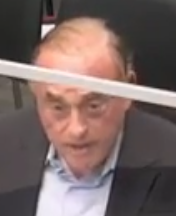 Nick Leblovic This was Leblovic in full flight and in his usual form – the kind of performance that was seen and experienced at the Waterfront Advisory Committee that Leblovic chaired until the city sunset the committee.
Members of that Waterfront Advisory will well remember Leblovic’s chairmanship. I recall one member swearing that if Leblovic continued with his behaviour he would “punch him in the face”.
Leblovic tends to draw that kind of response from people.
He served in a senior position on the Meed Ward run for Mayor in 2018 and again in 2022 – he was one of the very few (some think that together with his wife, the only core member) that carried over from 2018 to 2022.
The relationship with Leblovic was so tight that the Integrity Commissioner had to advise the Mayor that she did have a Conflict of Interest forcing her to give up the gavel and let the Deputy Mayor handle a portion of the City Council meeting.
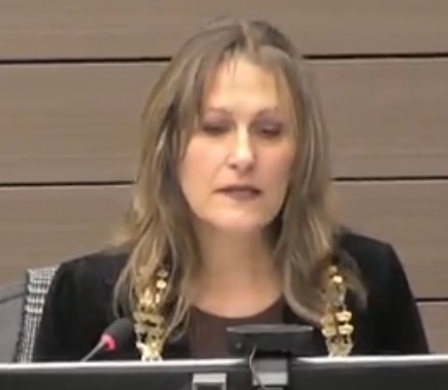 Mayor Marianne Meed Ward Leblovic is a citizen who has been active in local politics for decades, he was believed to be very close to former Mayor Cam Jackson who was instrumental in getting Leblovic on the Waterfront Advisory Committee
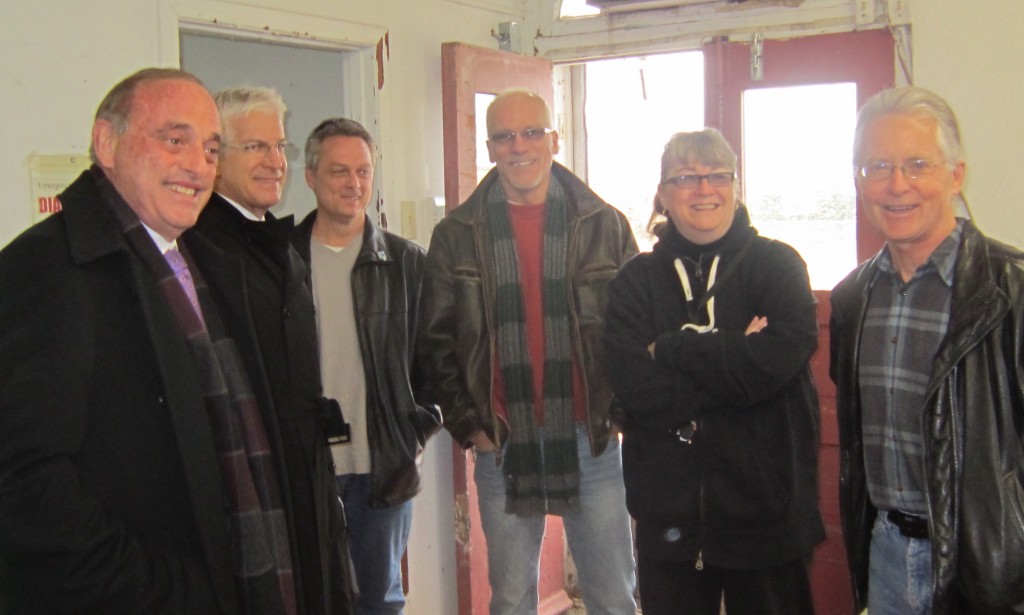 Waterfront Advisory committee before City council voted to shut the committee down. From left to right: Nick Leblovic, Michael O’Sullivan, Ken Harris, Jeff Martin, Donna Ankrett, and Gary Scobie. There comes a point when the grey beards need to sit on the sidelines and let those who are not past their “best before date” run the show.
The greatest surprise in this whole mess was the recommendation put forward by the Integrity Commissioner – not suspension, not removal but a voluntary couple of hours of training for everyone on a City Board or Commission. How does this either fit the offence or reflect the lack of contrition that Mr. Leblovic so obviously demonstrated?
It contrasts so jarringly with the decision made by the Integrity Commissioner on the Shawna Stolte matter, where she was docked five days pay, that one shakes their head in disbelief. The Integrity Commissioner made the point, after the decision had been sent to Council, that had they known Stolte was not in the least contrite the penalty would have been more severe.
While Stolte took the position that she did what she did was a matter of principle for her, which would not excuse her, she never challenged the jurisdiction of the Integrity Commissioner to adjudicate and she did nothing to denigrate the Office of the Integrity Commissioner. Can the same be said for Mr. Leblovic?
It is our view that Nick Leblovic is no longer fit for office and the responsible thing to do would have been to remove him from the Committee of Adjustment.
Related news stories:
Nick Leblovic gets to tell his story.
Integrity Commissioner teaches Councillors just what a Conflict of interest is
Integrity Commissioner refutes statements Leblovic makes
Salt with Pepper is the musings, reflections and opinions of the publisher of the Burlington Gazette, an online newspaper that was formed in 2010 and is a member of the National Newsmedia Council.

 By Pepper Parr By Pepper Parr
April 15th, 2023
BURLINGTON, ON
The words accountability and transparency get banged about like a ping pong ball – but little respect from some senior administrative staff and just about every member of Council. They mouth the words but there is little in the way of meat on the bones of their statements.
 The swearing in of a new council is the process that transfers power to newly elected Council members. They swear to be accountable and transparent. Elections are critical: they are actually a transaction between the public and those running for public office. The voters give the power they have – a ballot and use it to transfer their power to the people seeking public office.
The city administration, in this case the City Clerk overseen the elections, makes sure the ballot are properly counted and issues a statement declaring the winner for the Office of Mayo and the Council member for each ward.
Sometime after the election the City Clerk releases the financial statements each candidate is required to file. Those statements were due to be released on March 31st.
 Detailed election finance reports are behind this file on the city web site. Go figure. Try to find them on the city web site. They are there but difficult to find – we had to work with the City Communications department to figure out just where the documents were posted.
Unfortunately, and unfairly the Communications people are taking the hits for this dumb situation. We believe it is the City Clerk’s responsibility to ensure that the information is made public and easy to find.
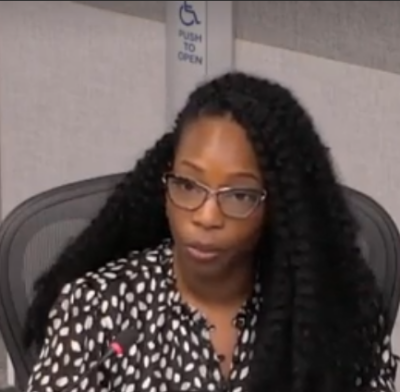 Executive Director Jackie Johnson  Both the City Clerk and the Director of Communications report to the city’s newest Executive Director Jackie Johnson; she might want to invite Kwab Ako-Adjei and Kevin Arjoon in for coffee and explain to them that they first have to cooperate and then exactly what she means by accountability, transparency and open government. Both the City Clerk and the Director of Communications report to the city’s newest Executive Director Jackie Johnson; she might want to invite Kwab Ako-Adjei and Kevin Arjoon in for coffee and explain to them that they first have to cooperate and then exactly what she means by accountability, transparency and open government.
The Gazette is in the process of reviewing all the financial returns and doing an analysis of how much money each candidate raised and where the money came from.
Accountability, transparency and Open Government.
Salt with Pepper is the musings, reflections and opinions of the publisher of the Burlington Gazette, an online newspaper that was formed in 2010 and is a member of the National Newsmedia Council.

|
|
 Rory Nisan is a deputy mayor in the City of Burlington. Prior to being elected to city council, he was a foreign service officer, during which he represented Canada at the UN, NATO and the Community of Democracies.
Rory Nisan is a deputy mayor in the City of Burlington. Prior to being elected to city council, he was a foreign service officer, during which he represented Canada at the UN, NATO and the Community of Democracies.
















 According to the Fraser folks….”The irony for Ford, the deficit fighter, is that had he only maintained the inflation-adjusted per-person spending at the same level he inherited from the Wynne government, he would be closer to running a surplus today.” Our growing economy has seen revenues increasing, but they have failed to keep pace with government spending. Over $10 billion of new net debt was created last year alone and another $24 billion is expected to be created over the three year period.
According to the Fraser folks….”The irony for Ford, the deficit fighter, is that had he only maintained the inflation-adjusted per-person spending at the same level he inherited from the Wynne government, he would be closer to running a surplus today.” Our growing economy has seen revenues increasing, but they have failed to keep pace with government spending. Over $10 billion of new net debt was created last year alone and another $24 billion is expected to be created over the three year period. Since more of the banks funds will thus be going into servicing the bank’s borrowing, less will be available for the various purposes for which it was created, such as funding long term care construction. Additionally, there are the not insignificant costs of establishing and operating the new bureaucracy, as well as rewarding its highly salaried staff to run the bank. Bottom line – this fancy financial dancing is the least efficient and most costly way to deliver provincial programs.
Since more of the banks funds will thus be going into servicing the bank’s borrowing, less will be available for the various purposes for which it was created, such as funding long term care construction. Additionally, there are the not insignificant costs of establishing and operating the new bureaucracy, as well as rewarding its highly salaried staff to run the bank. Bottom line – this fancy financial dancing is the least efficient and most costly way to deliver provincial programs. Ray Rivers, a Gazette Contributing Editor, writes regularly applying his more than 25 years as a federal bureaucrat to his thinking. Rivers was once a candidate for provincial office in Burlington. He was the founder of the Burlington citizen committee on sustainability at a time when climate warming was a hotly debated subject. Ray has a post graduate degree in economics that he earned at the University of Ottawa. Tweet @rayzrivers
Ray Rivers, a Gazette Contributing Editor, writes regularly applying his more than 25 years as a federal bureaucrat to his thinking. Rivers was once a candidate for provincial office in Burlington. He was the founder of the Burlington citizen committee on sustainability at a time when climate warming was a hotly debated subject. Ray has a post graduate degree in economics that he earned at the University of Ottawa. Tweet @rayzrivers
 The federal government argues that it’s not properly a tax since, as a kind of revolving fund, the carbon levy is revenue neutral. Everything collected is returned to tax filers less some small amount for administration. The point of the tax is to make the costs of fossil fuels increasingly more costly so Canadians will switch to non-carbon alternative energy sources.
The federal government argues that it’s not properly a tax since, as a kind of revolving fund, the carbon levy is revenue neutral. Everything collected is returned to tax filers less some small amount for administration. The point of the tax is to make the costs of fossil fuels increasingly more costly so Canadians will switch to non-carbon alternative energy sources. Mr. Trudeau dealt the credibility of carbon pricing a blow when his government decided to help homeowners by removing the carbon tax from heating oil. This lapse in policy stinks of partisan politics. Moreover, that has given Mr. Poilievre ammunition in his quest to completely axe the carbon tax should he win the next election. And given the polls that is exactly what will happen in 2025 if not sooner.
Mr. Trudeau dealt the credibility of carbon pricing a blow when his government decided to help homeowners by removing the carbon tax from heating oil. This lapse in policy stinks of partisan politics. Moreover, that has given Mr. Poilievre ammunition in his quest to completely axe the carbon tax should he win the next election. And given the polls that is exactly what will happen in 2025 if not sooner.
 Ray Rivers, a Gazette Contributing Editor, writes regularly applying his more than 25 years as a federal bureaucrat to his thinking. Rivers was once a candidate for provincial office in Burlington. He was the founder of the Burlington citizen committee on sustainability at a time when climate warming was a hotly debated subject. Ray has a post graduate degree in economics that he earned at the University of Ottawa. Tweet @rayzrivers
Ray Rivers, a Gazette Contributing Editor, writes regularly applying his more than 25 years as a federal bureaucrat to his thinking. Rivers was once a candidate for provincial office in Burlington. He was the founder of the Burlington citizen committee on sustainability at a time when climate warming was a hotly debated subject. Ray has a post graduate degree in economics that he earned at the University of Ottawa. Tweet @rayzrivers By Pepper Parr
By Pepper Parr
 By Staff
By Staff





 2 – Bury the details, where almost no one can find them, on page 728 of the budget book.
2 – Bury the details, where almost no one can find them, on page 728 of the budget book.

 Breaking up the Greenbelt was never really about providing new homes for the masses. The AG’s says it well in her report…
Breaking up the Greenbelt was never really about providing new homes for the masses. The AG’s says it well in her report…








 Vancouver and Montreal need to be applauded for cancelling their fireworks displays this Canada Day, Vancouver permanently. But what about Toronto and Burlington? Jurisdictions seem to have no trouble banning gas powered leaf blowers to help reduce air pollution, after all.
Vancouver and Montreal need to be applauded for cancelling their fireworks displays this Canada Day, Vancouver permanently. But what about Toronto and Burlington? Jurisdictions seem to have no trouble banning gas powered leaf blowers to help reduce air pollution, after all.



 In addition to the urban/rural divide there is the east/west split, which today has been spirited mostly by the Alberta political mafia. Of course it’s really only anti-Trudeau. But it can’t be smart to be underrepresented federally even if you hate the leader’s guts. So an ongoing Liberal presence in that Manitoba riding which they nailed should be looked at as just a blessing in disguise.
In addition to the urban/rural divide there is the east/west split, which today has been spirited mostly by the Alberta political mafia. Of course it’s really only anti-Trudeau. But it can’t be smart to be underrepresented federally even if you hate the leader’s guts. So an ongoing Liberal presence in that Manitoba riding which they nailed should be looked at as just a blessing in disguise.


 Voter turnout is traditionally low. In 2022, 27.6 per cent of eligible voters in Burlington voted in the municipal election; in the 2018 municipal election, 39.79 per cent of eligible voters cast a ballot.
Voter turnout is traditionally low. In 2022, 27.6 per cent of eligible voters in Burlington voted in the municipal election; in the 2018 municipal election, 39.79 per cent of eligible voters cast a ballot.






 When a group of us fought regional amalgamation in 2019 we believed that we were protecting local voice and decision-making. Today, we would be far less enthusiastic. Even in 2019 we acknowledged and supported the benefits of further consolidation of certain services and functions at the regional level – things like information technology, fleet management, common purchasing, vendors of record and transportation.
When a group of us fought regional amalgamation in 2019 we believed that we were protecting local voice and decision-making. Today, we would be far less enthusiastic. Even in 2019 we acknowledged and supported the benefits of further consolidation of certain services and functions at the regional level – things like information technology, fleet management, common purchasing, vendors of record and transportation.

















